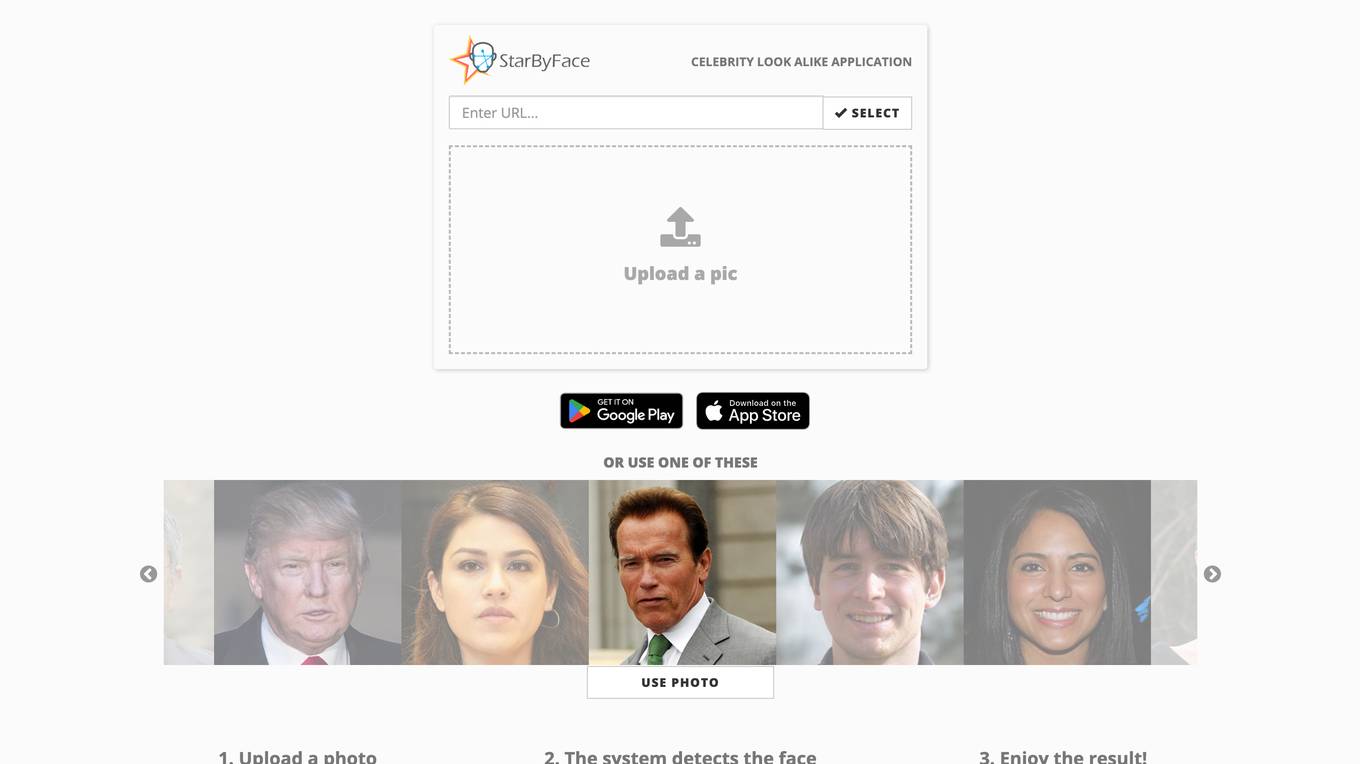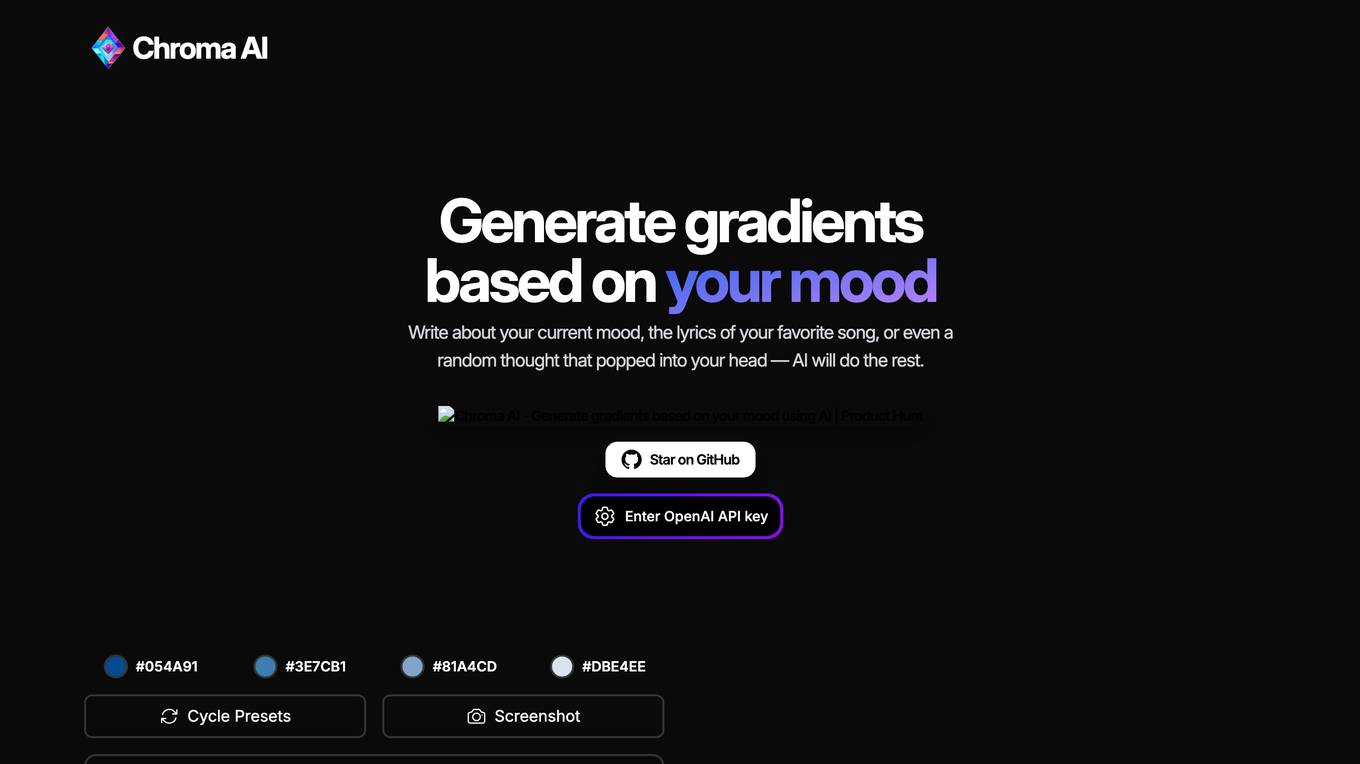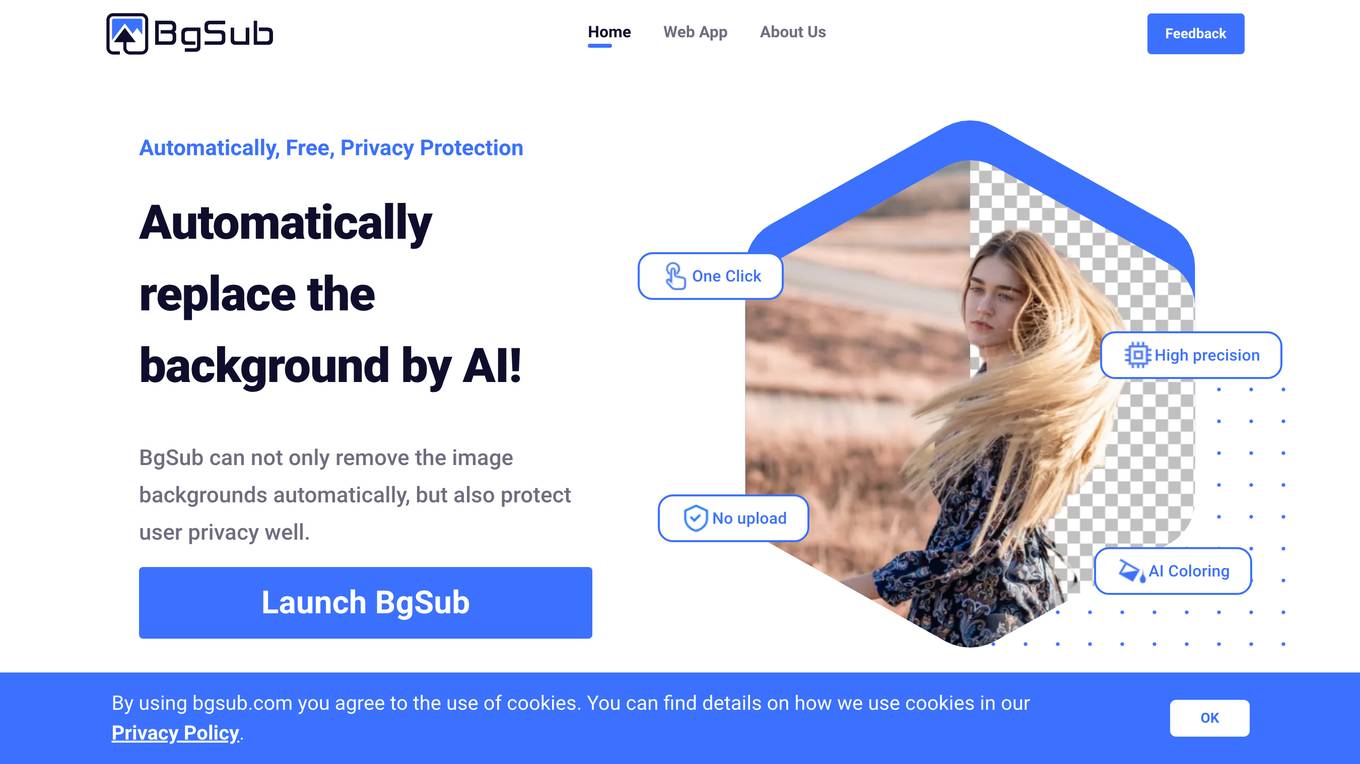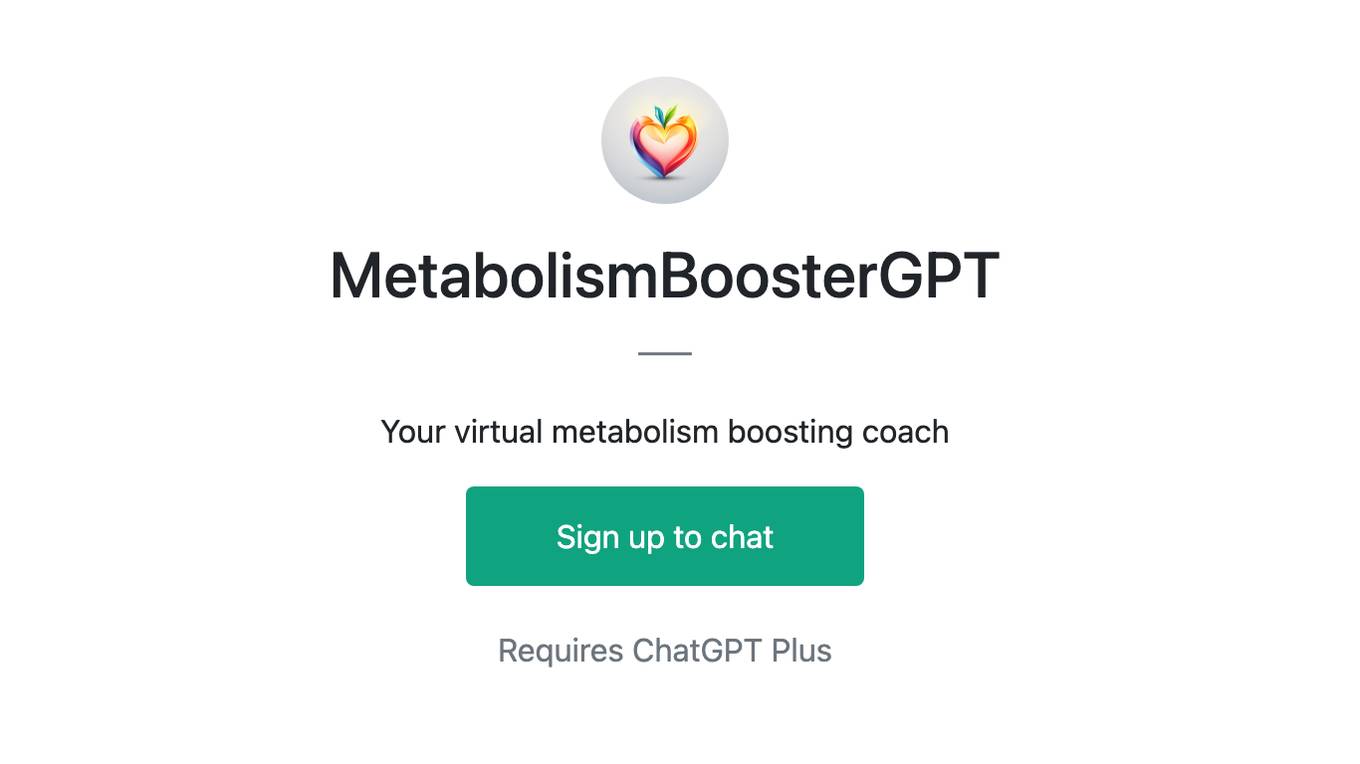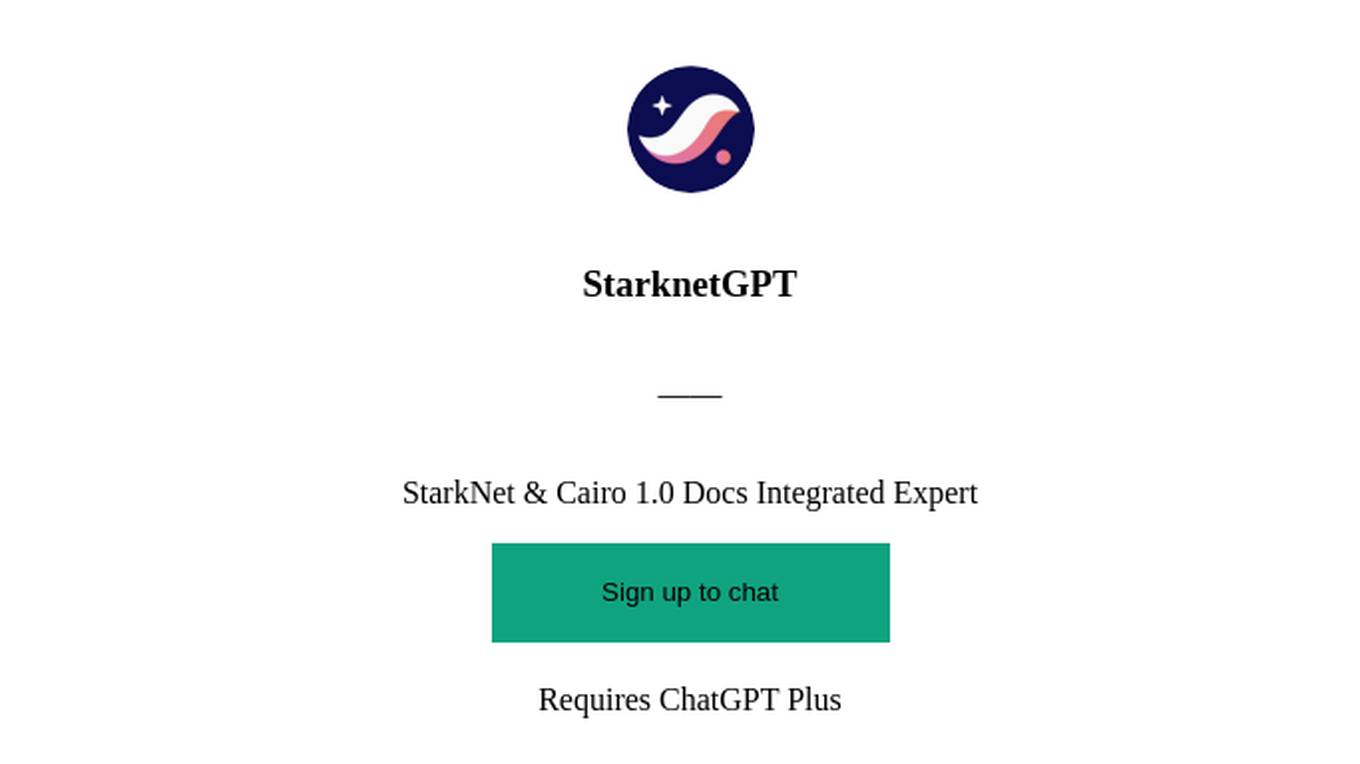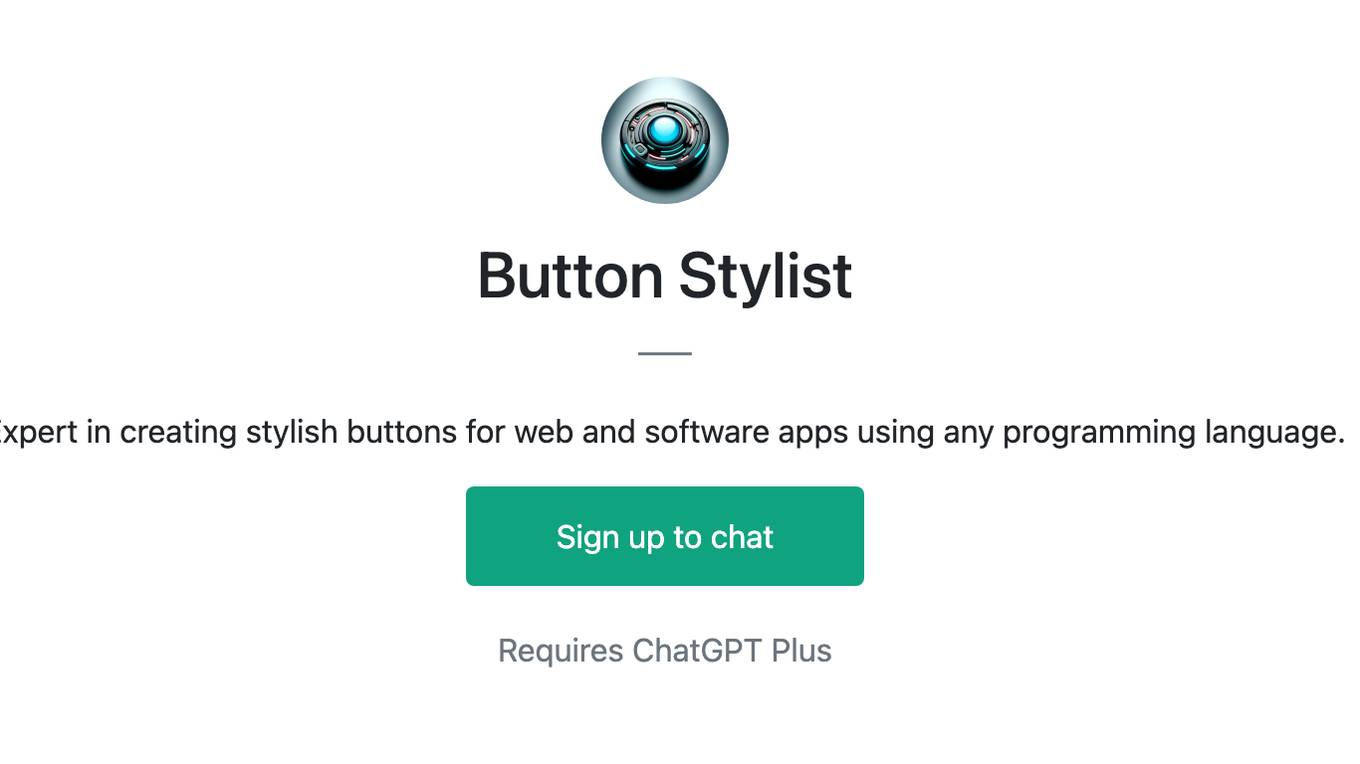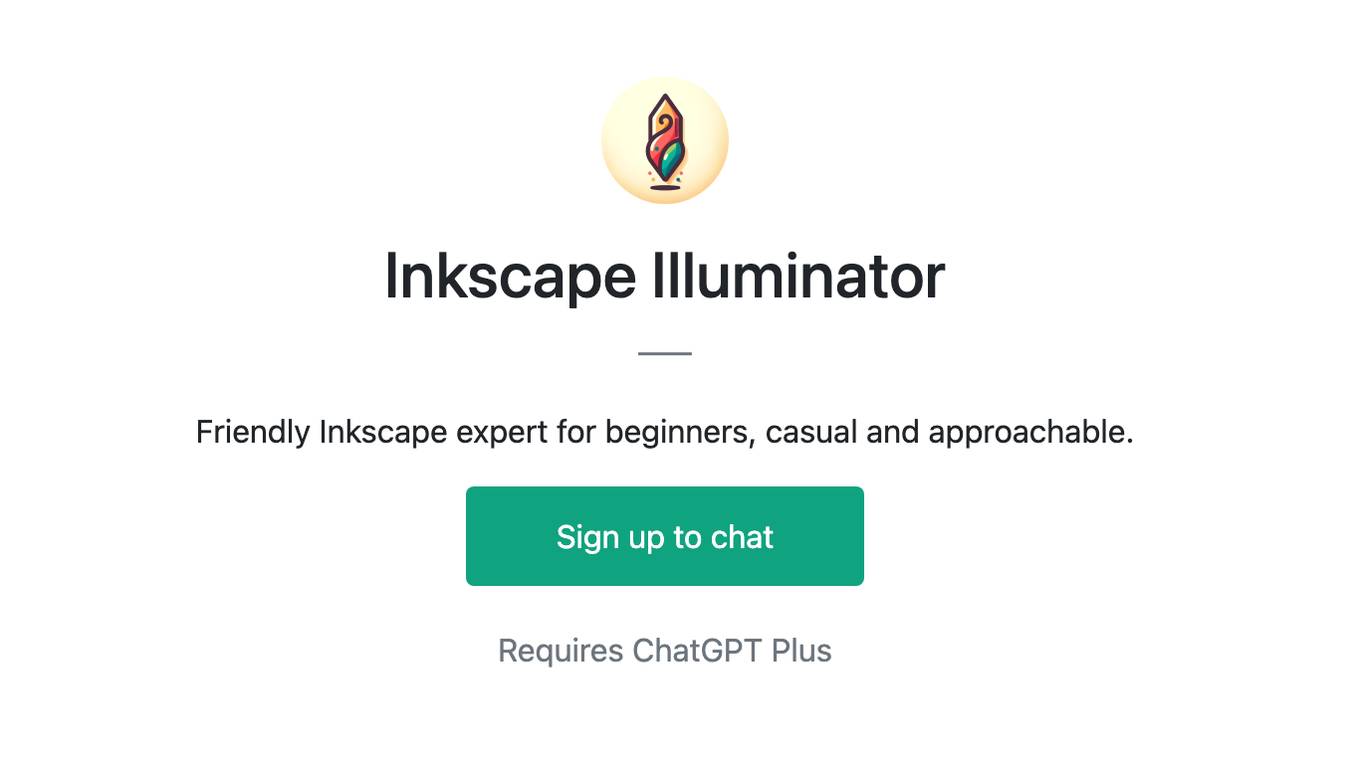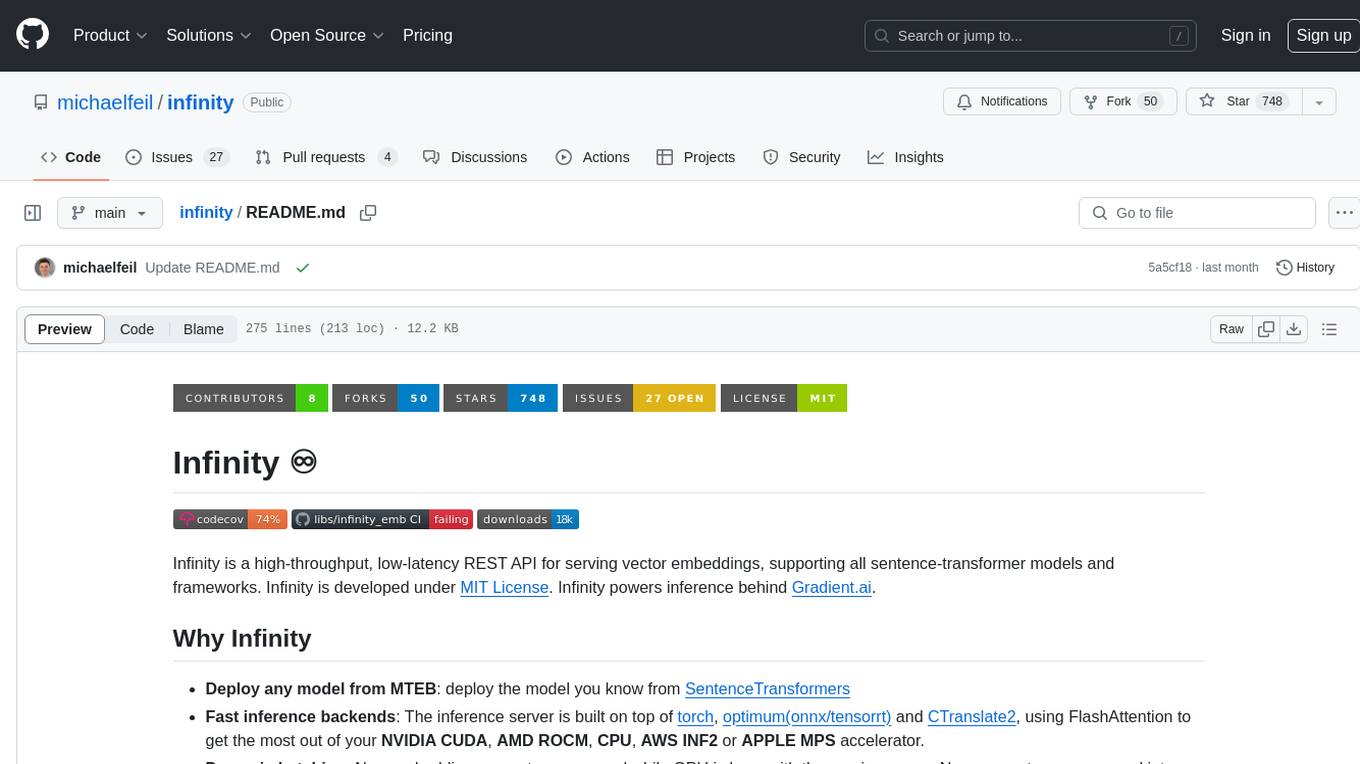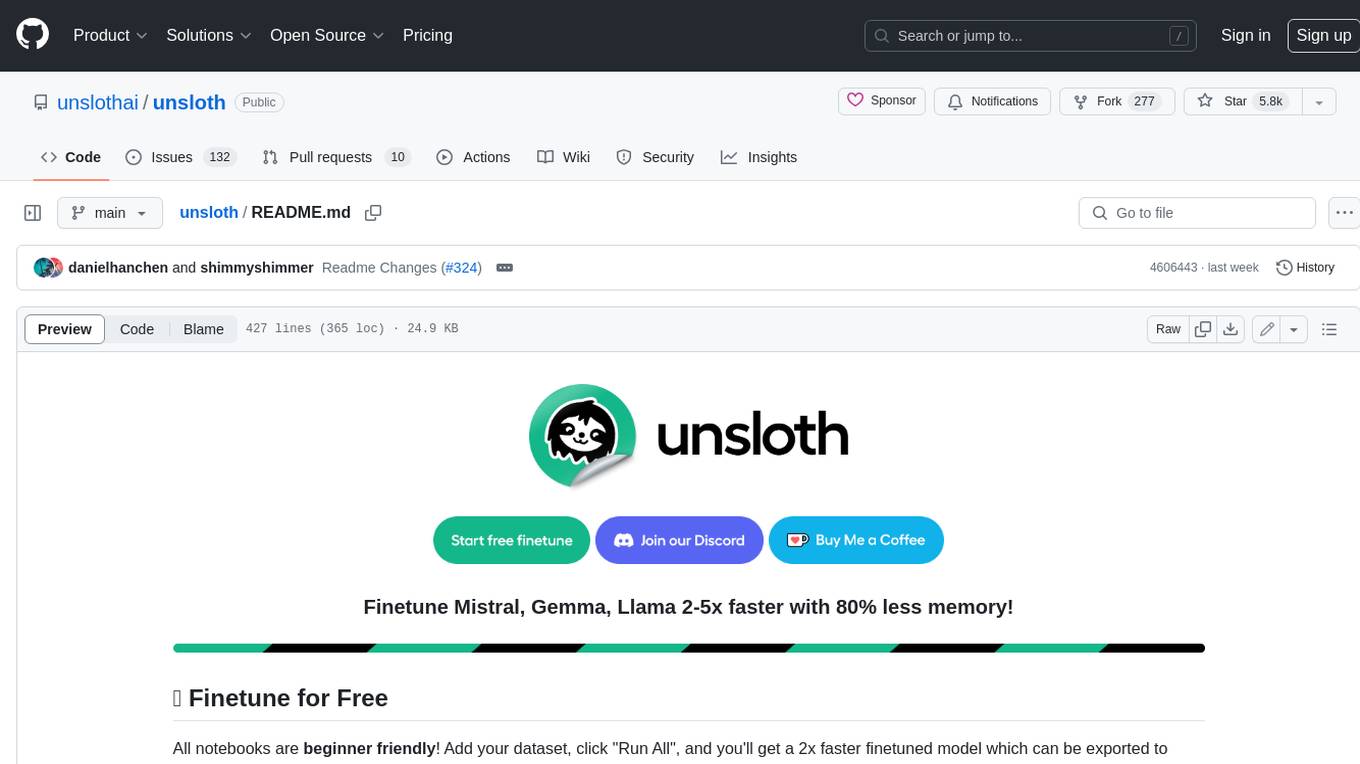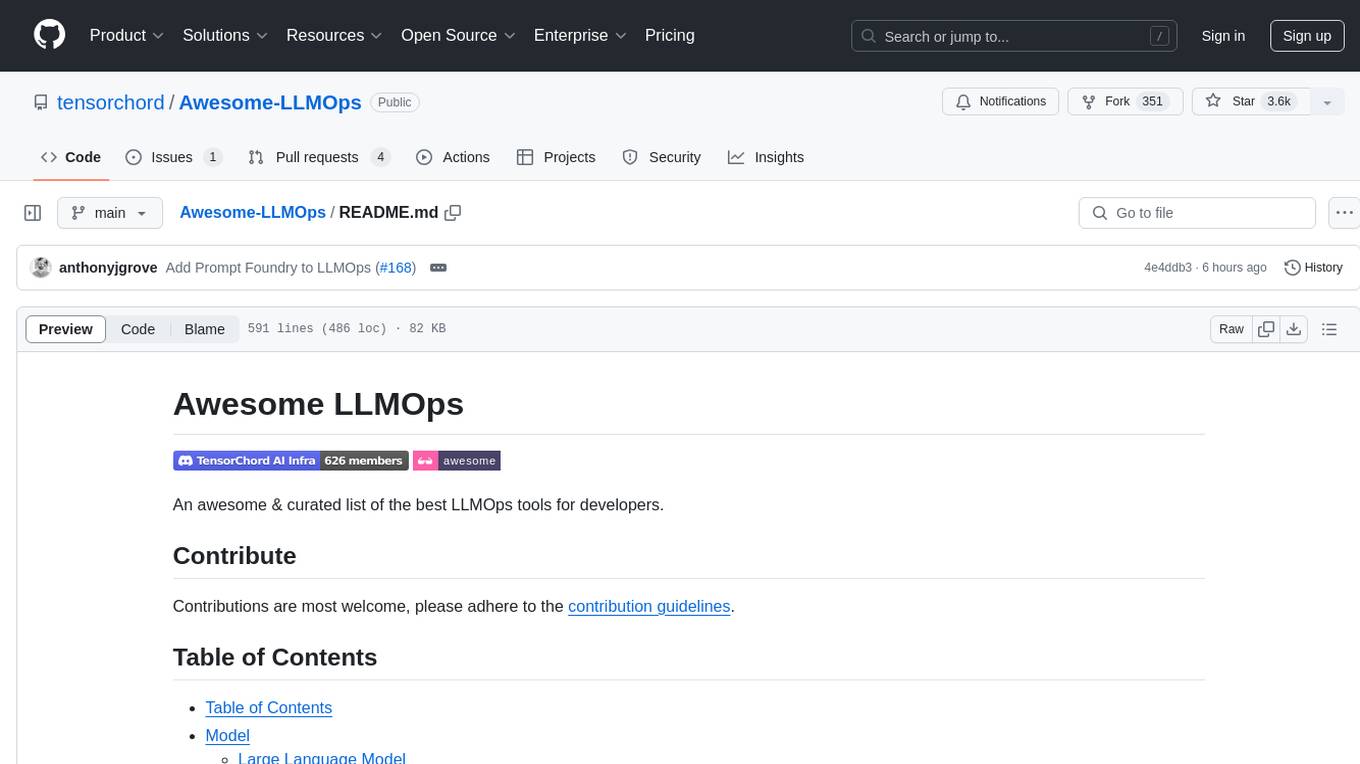AI tools for gradient-cli documentation
Related Tools:
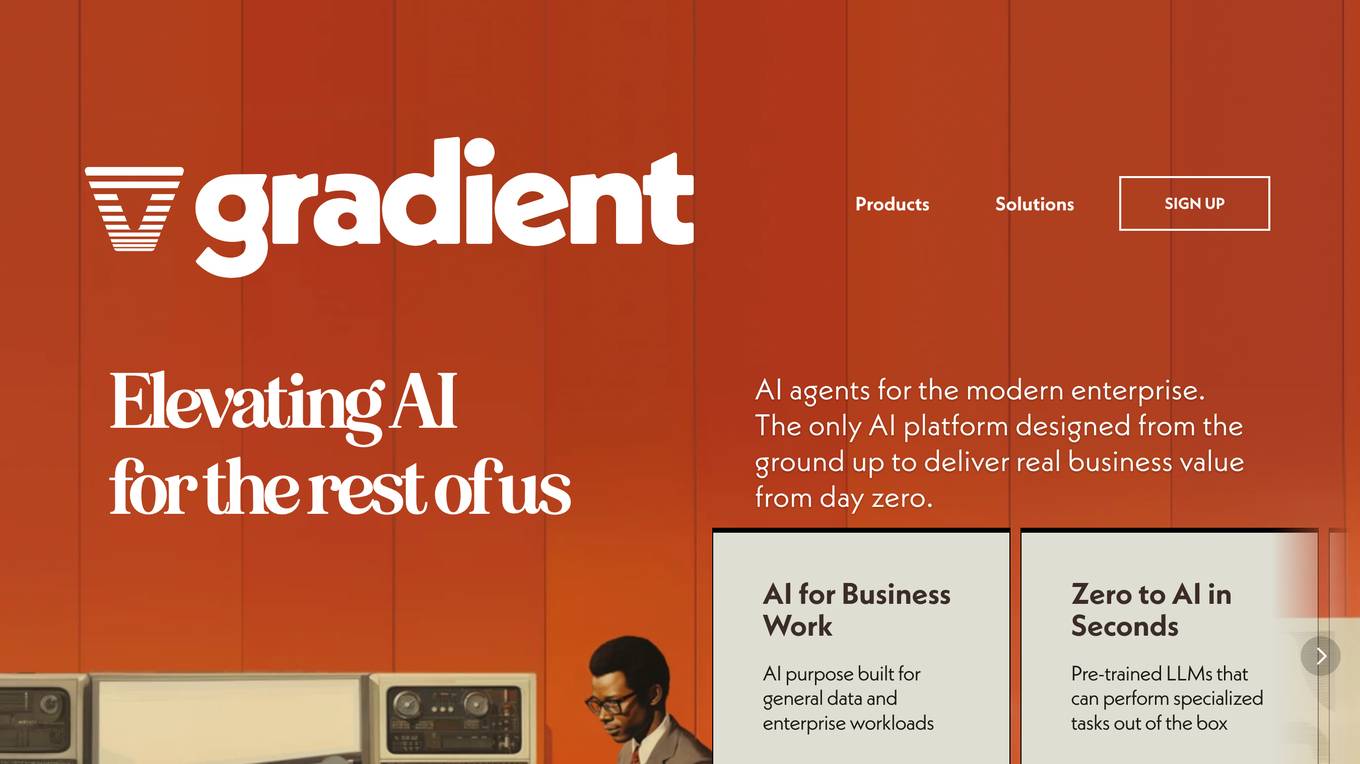
Gradient
Gradient is an AI automation platform designed specifically for enterprise AI purposes. It offers a seamless way to automate manual workflows with minimal effort, providing business intuition and industry expertise. The platform ensures unmatched compliance with various regulations and prioritizes privacy and security. Gradient's Agent Foundry enables users to automate tasks, integrate data, and optimize workflows efficiently, making it a valuable tool for modern enterprises.

Gradient Insight
Gradient Insight is a data science consulting and AI solutions provider. They offer a range of services including generative AI development, machine learning, computer vision, robotics and automation, AI strategy and roadmap, and data analytics. Their team of expert data scientists helps businesses to de-risk their investment in AI and to overcome barriers to engineering innovation. Gradient Insight has worked with clients such as Opitas, a fintech company, and the UK MOD. They offer a smooth and efficient process from consultation to delivery, and ongoing support and improvement.
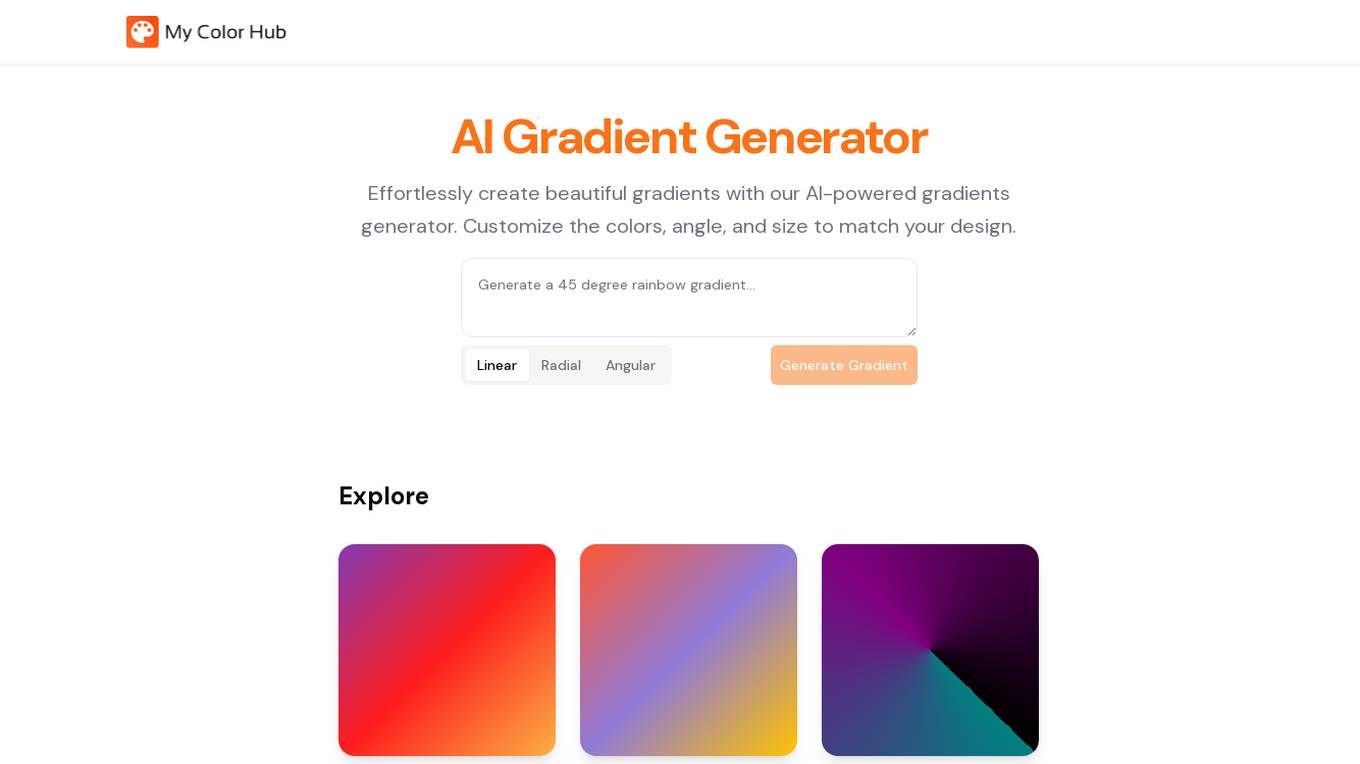
My Color Hub
My Color Hub is an AI Gradient Generator that allows users to effortlessly create beautiful gradients using AI-powered technology. Users can customize colors, angles, and sizes to match their design needs. The tool offers a wide range of gradient options, from linear to radial to angular, and provides the flexibility to generate gradients for various purposes such as tech designs, pastel-colored themes, anime styles, and more. With My Color Hub, users can easily create unique and visually appealing gradients for their projects.
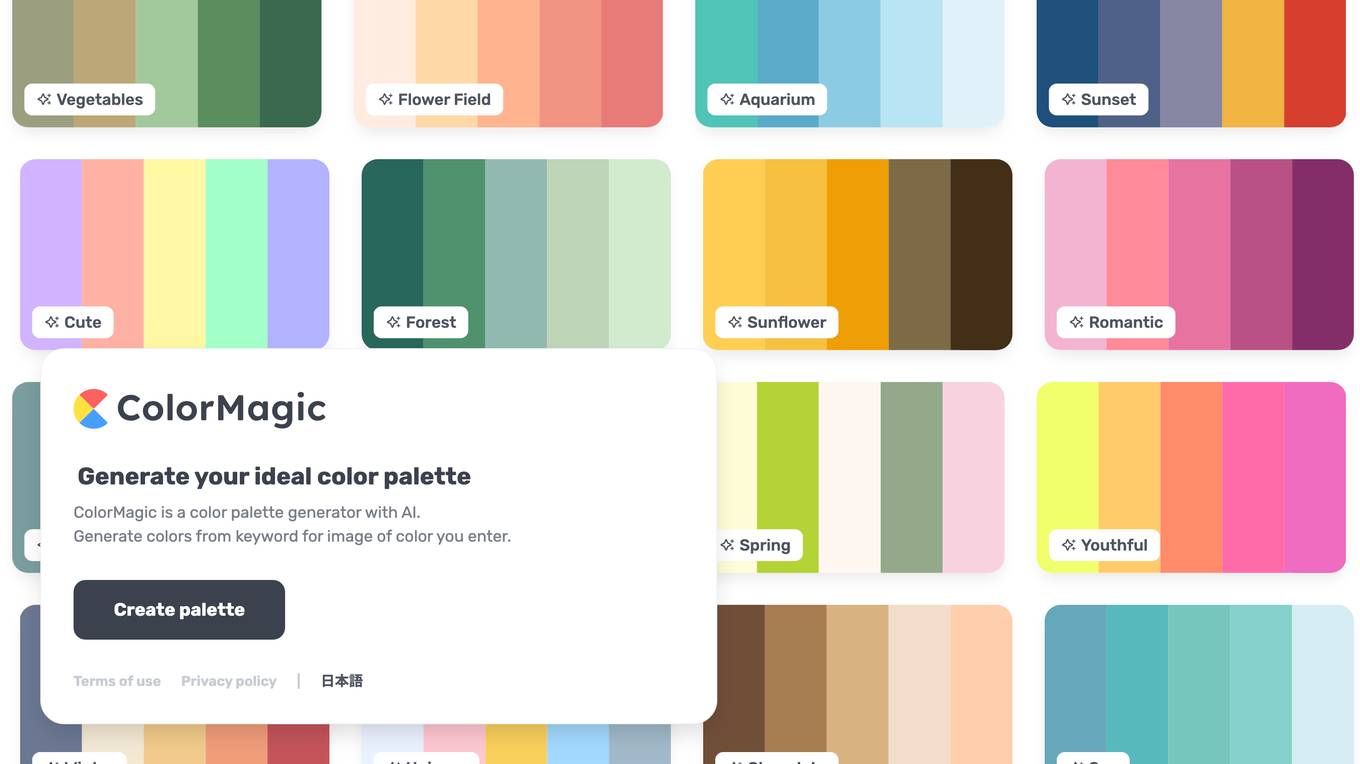
ColorMagic
ColorMagic is a powerful AI color palette generator that helps designers create beautiful color palettes in seconds. Users can generate color schemes from names, images, text, or hex codes effortlessly. The tool offers a variety of features such as generating palettes from names or images, mixing and blending colors, creating CSS gradients, and providing color palette ideas for different design styles.
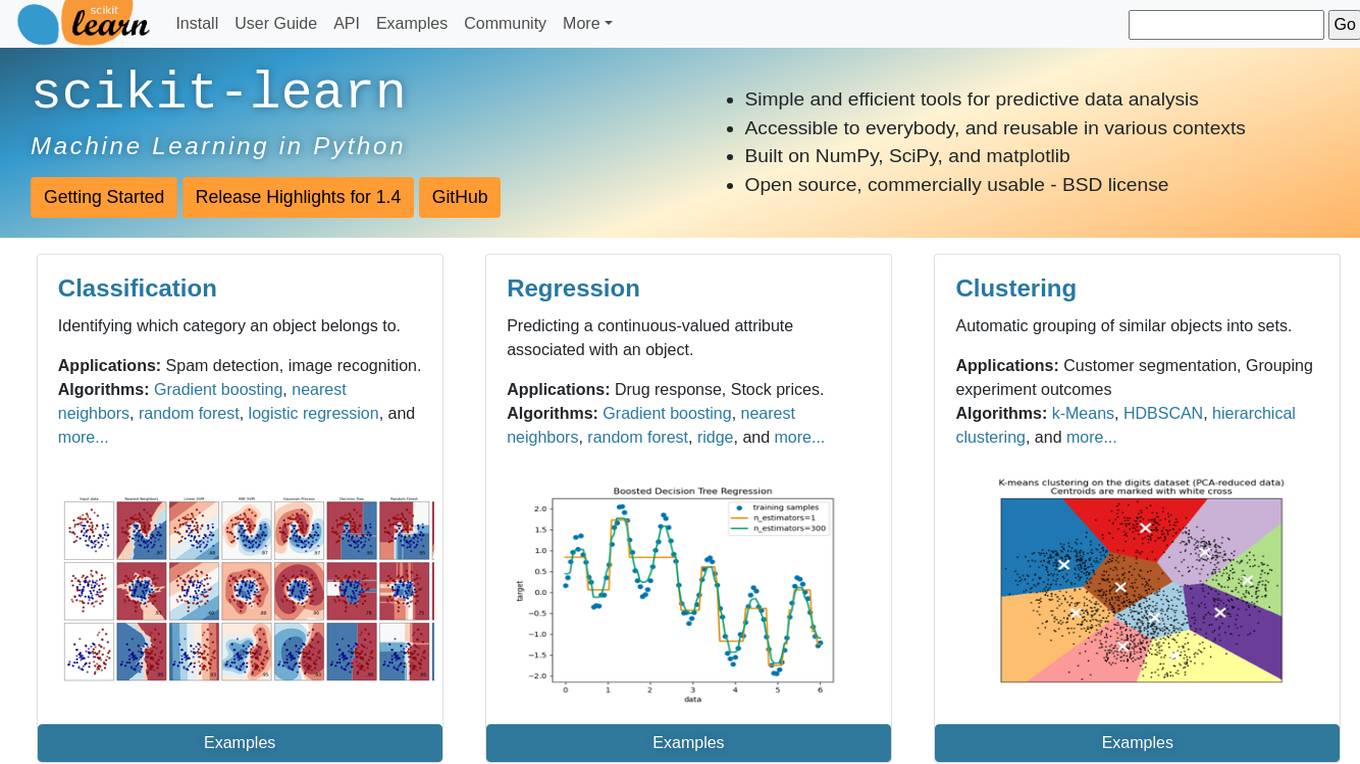
scikit-learn
Scikit-learn is a free software machine learning library for the Python programming language. It features various classification, regression and clustering algorithms including support vector machines, random forests, gradient boosting, k-means and DBSCAN, and is designed to interoperate with the Python numerical and scientific libraries NumPy and SciPy.
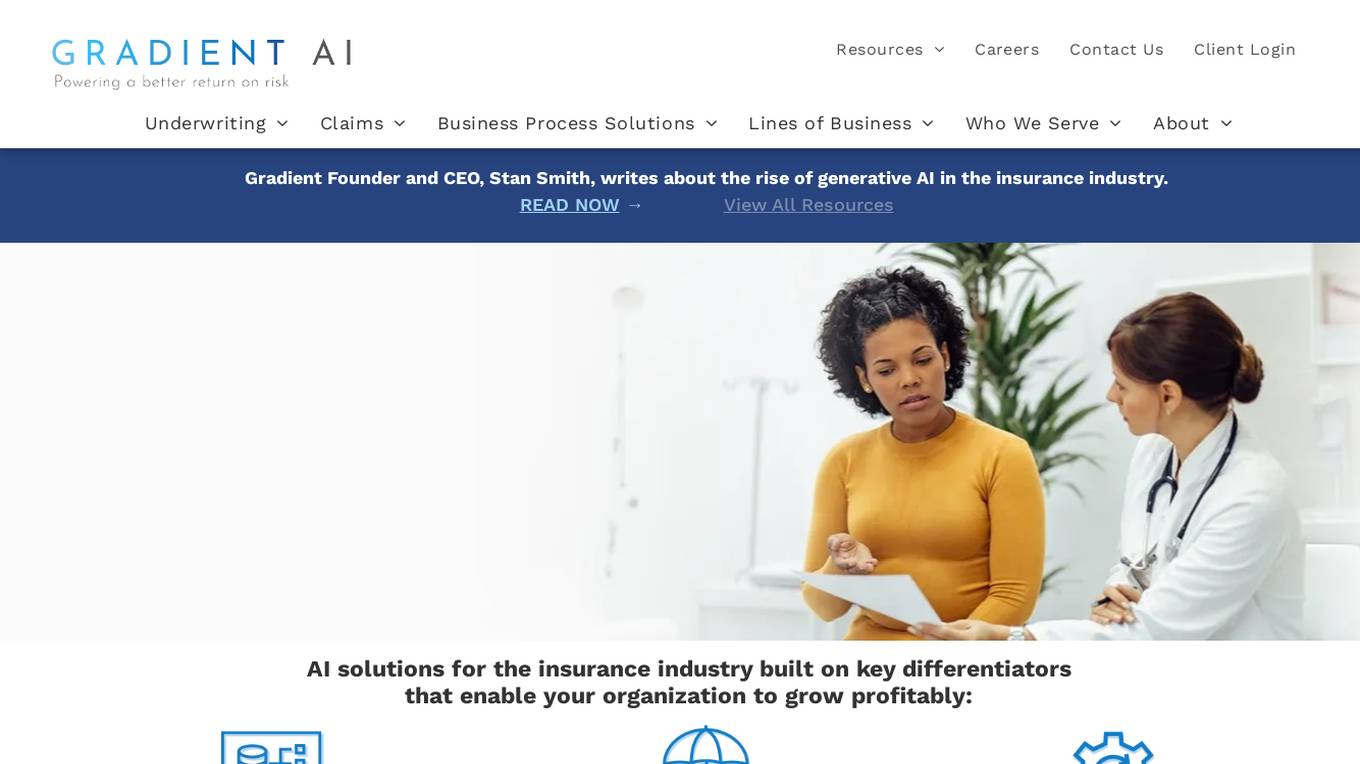
Gradient AI
Gradient AI is a leading provider of artificial intelligence solutions for the insurance industry. Their solutions improve loss ratios and profitability by predicting underwriting and claims risks with greater accuracy, as well as reducing quote turnaround times and claim expenses through intelligent automation.

Gradient AI
Gradient AI is a leading provider of artificial intelligence solutions for the insurance industry. Its solutions improve loss ratios and profitability by predicting underwriting and claims risks with greater accuracy, as well as reducing quote turnaround times and claim expenses through intelligent automation.
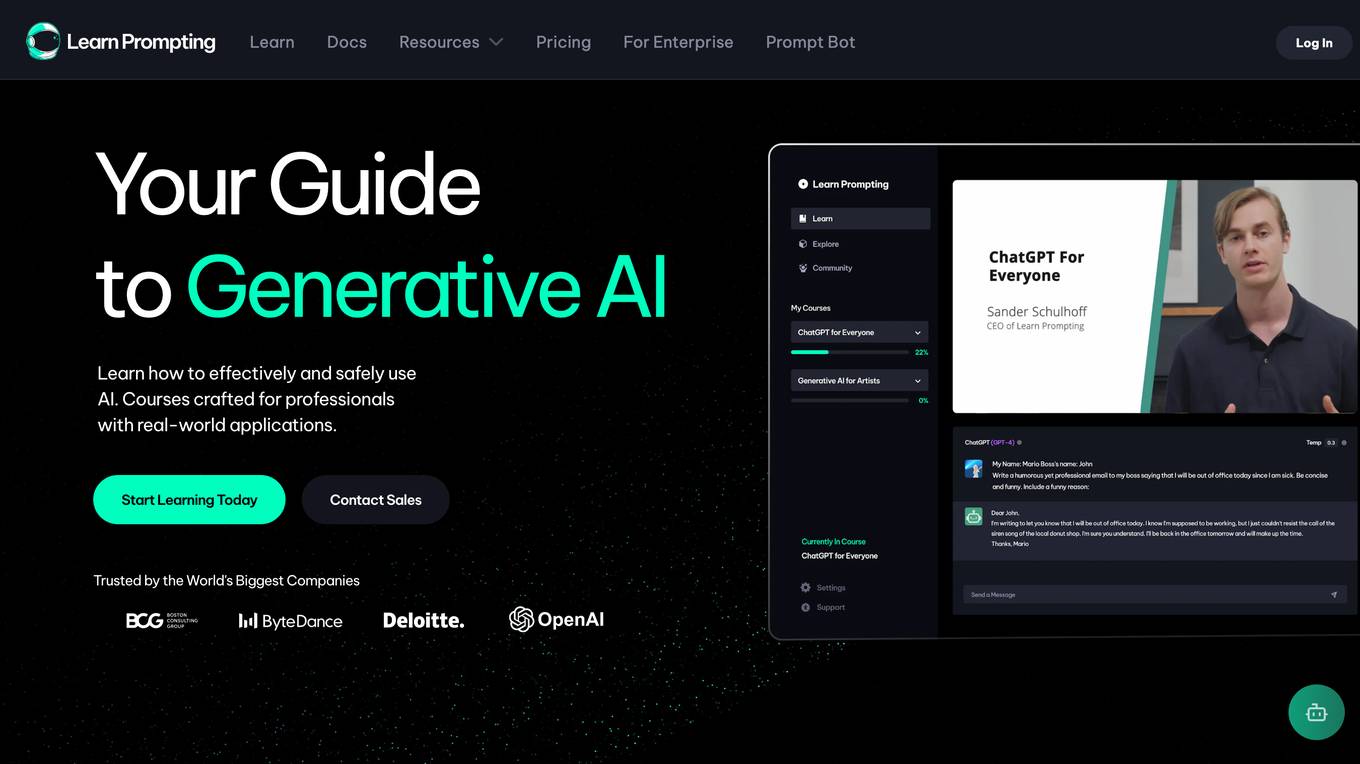
Learn Prompting
Learn Prompting is a free, open-source course that teaches you how to communicate with AI effectively and safely. It covers everything from the basics of AI communication to more advanced techniques, such as prompt engineering and gradient-based techniques. Learn Prompting also has a large Discord community of people who are interested in learning how to prompt. This makes it a great resource for anyone who wants to learn more about AI and how to use it effectively.
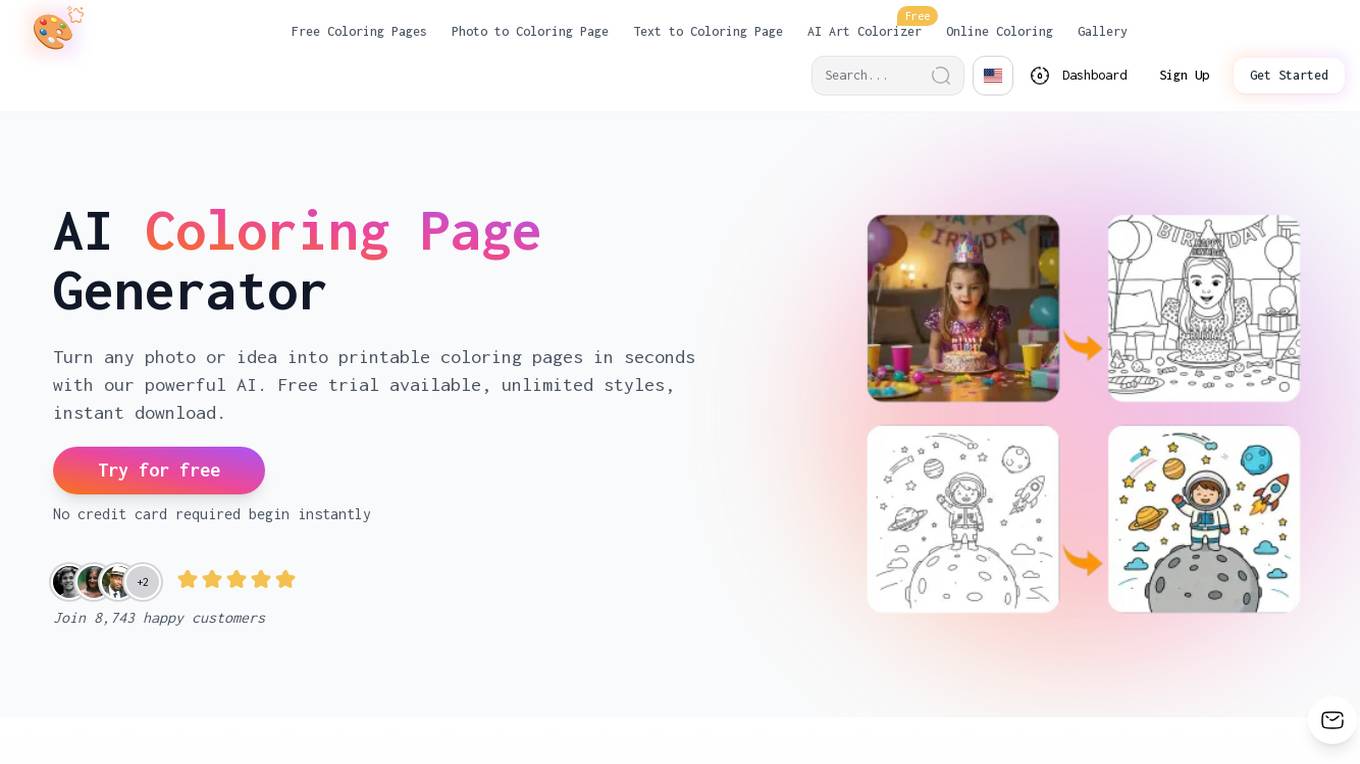
BestColoringPages.ai
BestColoringPages.ai is the #1 AI Coloring Page Generator that offers a wide range of features to turn photos or text into printable coloring pages. With powerful AI technology, users can create personalized coloring pages, explore color palettes, and enjoy digital coloring directly in the browser. The platform provides a vast library of free printable coloring pages and tools like the AI Art Colorizer for artists, illustrators, and hobbyists. BestColoringPages.ai prioritizes user privacy and offers secure uploads and private mode for coloring page creations.
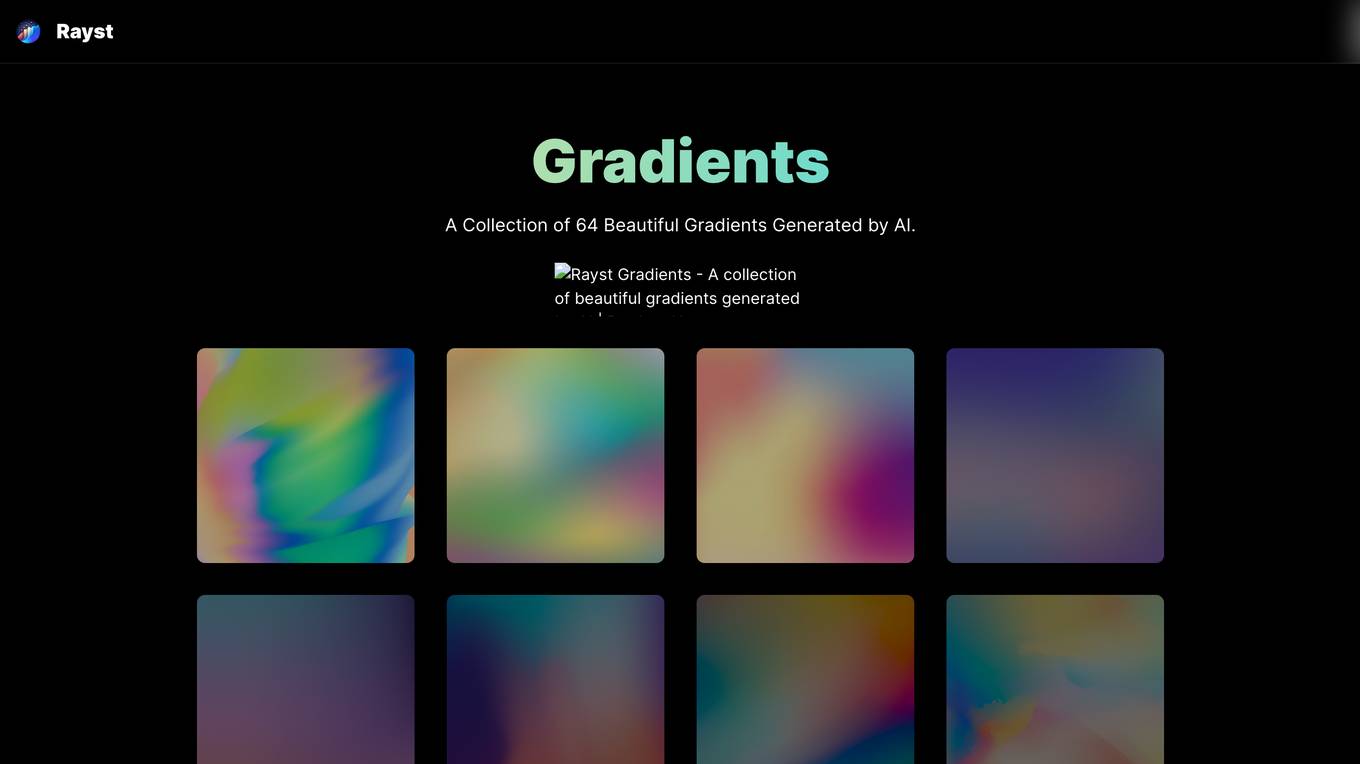
Rayst Gradients
Rayst Gradients is a collection of 64 beautiful gradients generated by AI. Users can freely download and use these gradients for both commercial and non-commercial purposes without needing permission, although attribution is appreciated. The website offers a wide range of visually appealing color combinations that can enhance various design projects.
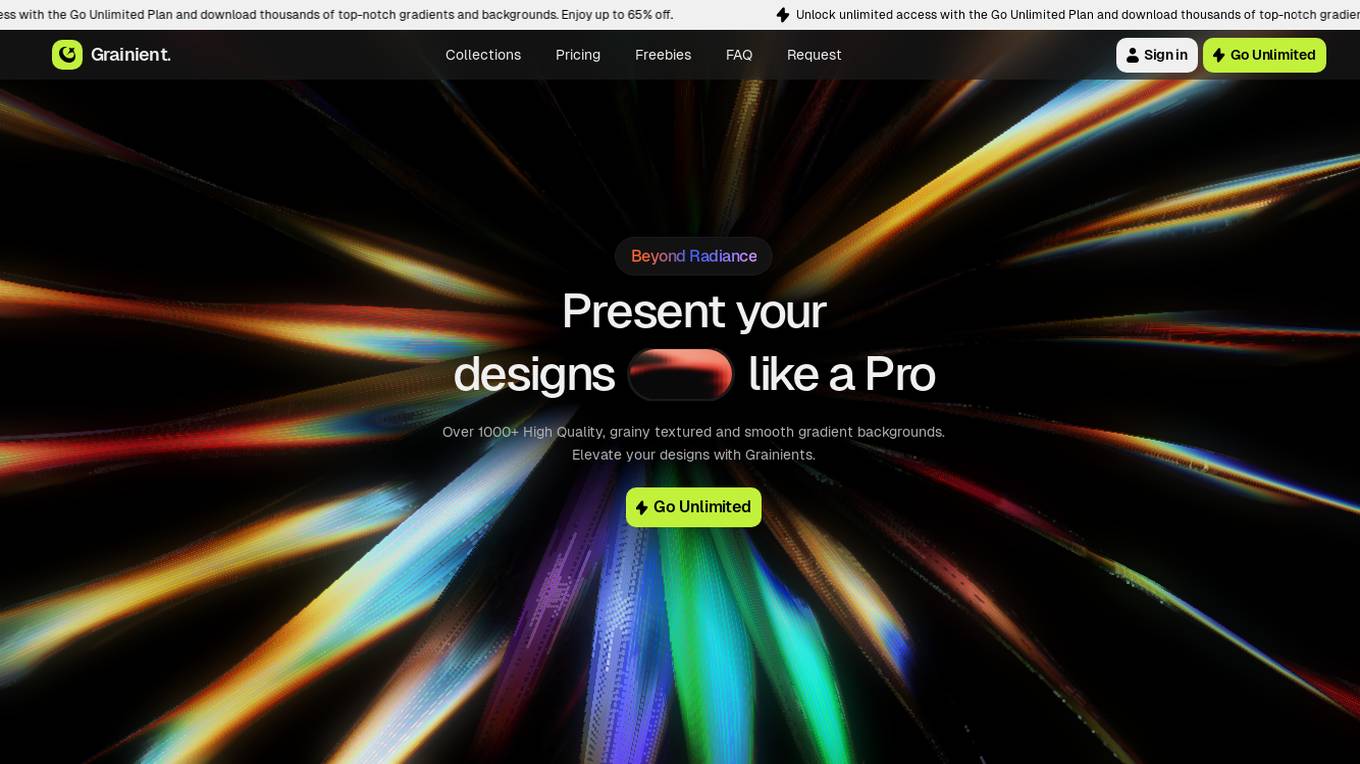
Grainient
Grainient is an AI-powered platform that offers over 1000 high-quality gradients and AI-generated backgrounds for designers and startup creatives. With the Go Unlimited Plan, users can unlock unlimited access to top-notch gradients and backgrounds, enjoying up to 65% off. The platform provides a versatile collection of premium gradients that enhance design presentations, with options ranging from smooth blends to noisy/grainy textures. Users can find a variety of categories such as Spectral Gradients, Darkmists, Mistmusks, Fractal Nights, and Serenmists, each offering unique styles and color schemes. Grainient is loved by creatives worldwide for its customizable gradients and AI designs, making it a go-to resource for UI projects and visual brand identity creation.
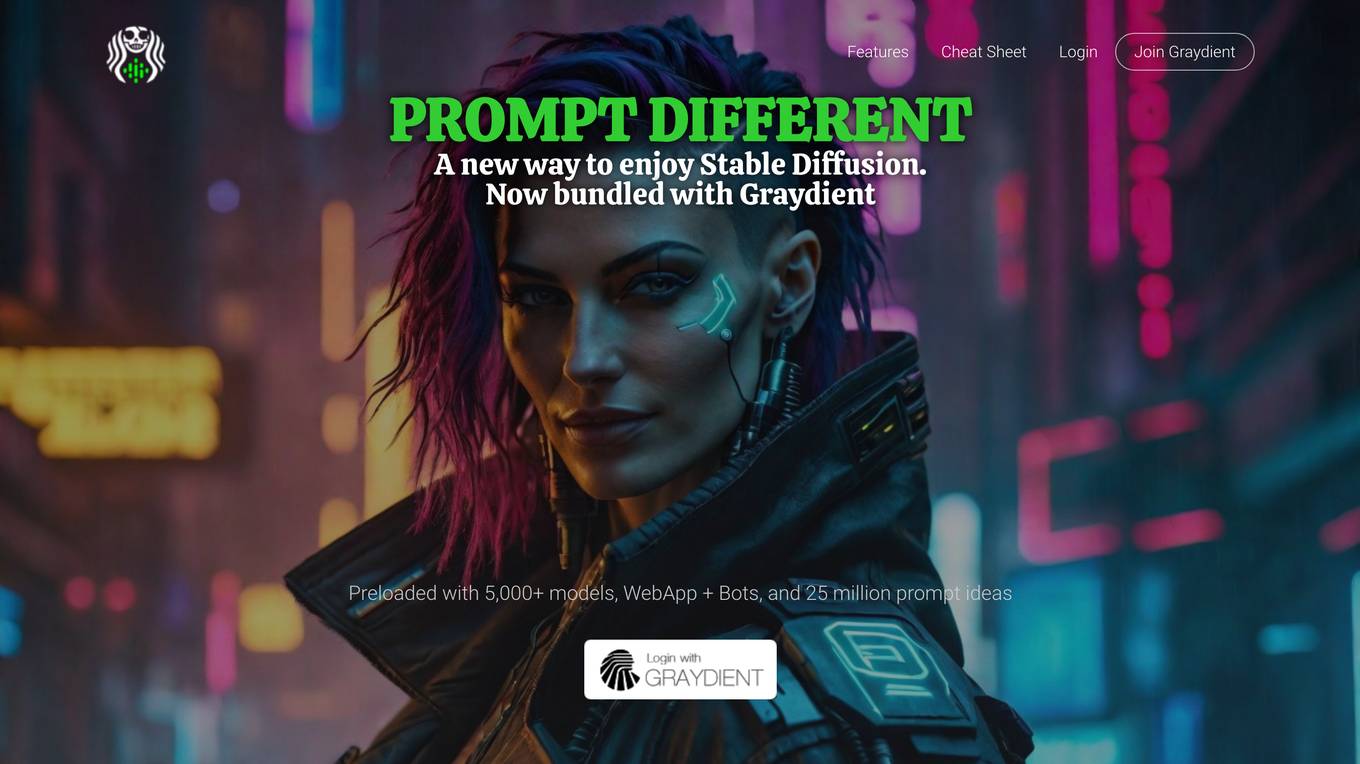
Pirate Diffusion
Pirate Diffusion is a unique software and community created for individuals seeking the full potential of Stable Diffusion on the go. It offers a range of features, including preloaded models, web app and bots, and a vast collection of prompt ideas. With Pirate Diffusion, users can create unlimited images, utilize LLM bots, upload and edit their own photos, and engage in various image manipulation techniques such as sketch-to-photo, img2img, inpainting, outpainting, and face swapping. Additionally, it provides access to advanced features like ControlNet, IP Adapter, blend, unlimited background remover, 200 steps, HiResFix, samplers, and 4X upscalers. Pirate Diffusion is integrated with Graydient, a cloud computing platform for creating AI spaces, allowing users to access their images across multiple apps and devices.
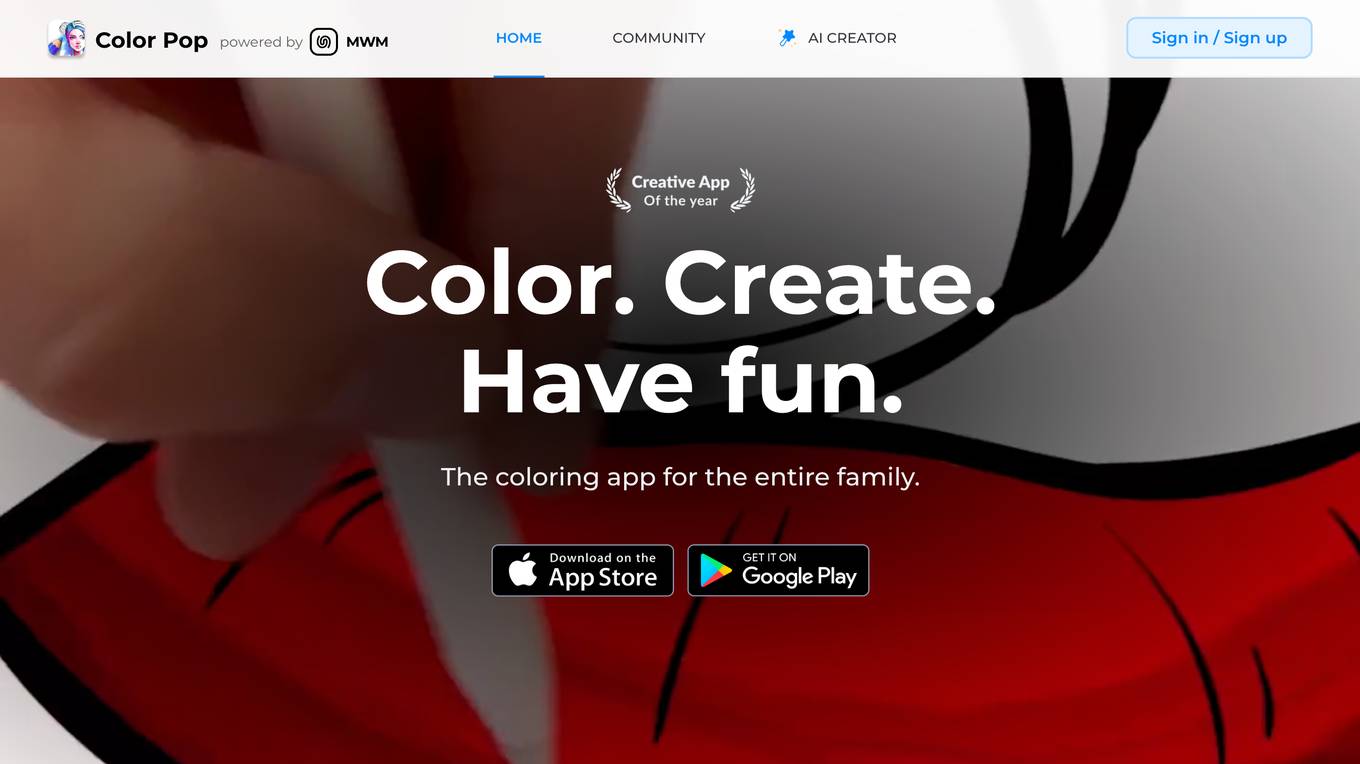
Color Pop
Color Pop is a fun and easy-to-use coloring app that is perfect for people of all ages. With over 600 drawings to choose from, there is something for everyone. The app also includes a variety of tools and effects that allow you to create stunning works of art. Color Pop is a great way to relax and de-stress, and it can also help you to express your creativity.

Khroma
Khroma is an AI-powered color tool designed for designers. It uses machine learning to generate personalized color palettes based on your preferences. With Khroma, you can create, search, and save limitless color combinations. It offers various features such as color generation, palette creation, search and filtering, and color saving. Khroma's intuitive interface and advanced algorithms make it easy for designers to find the perfect colors for their projects.
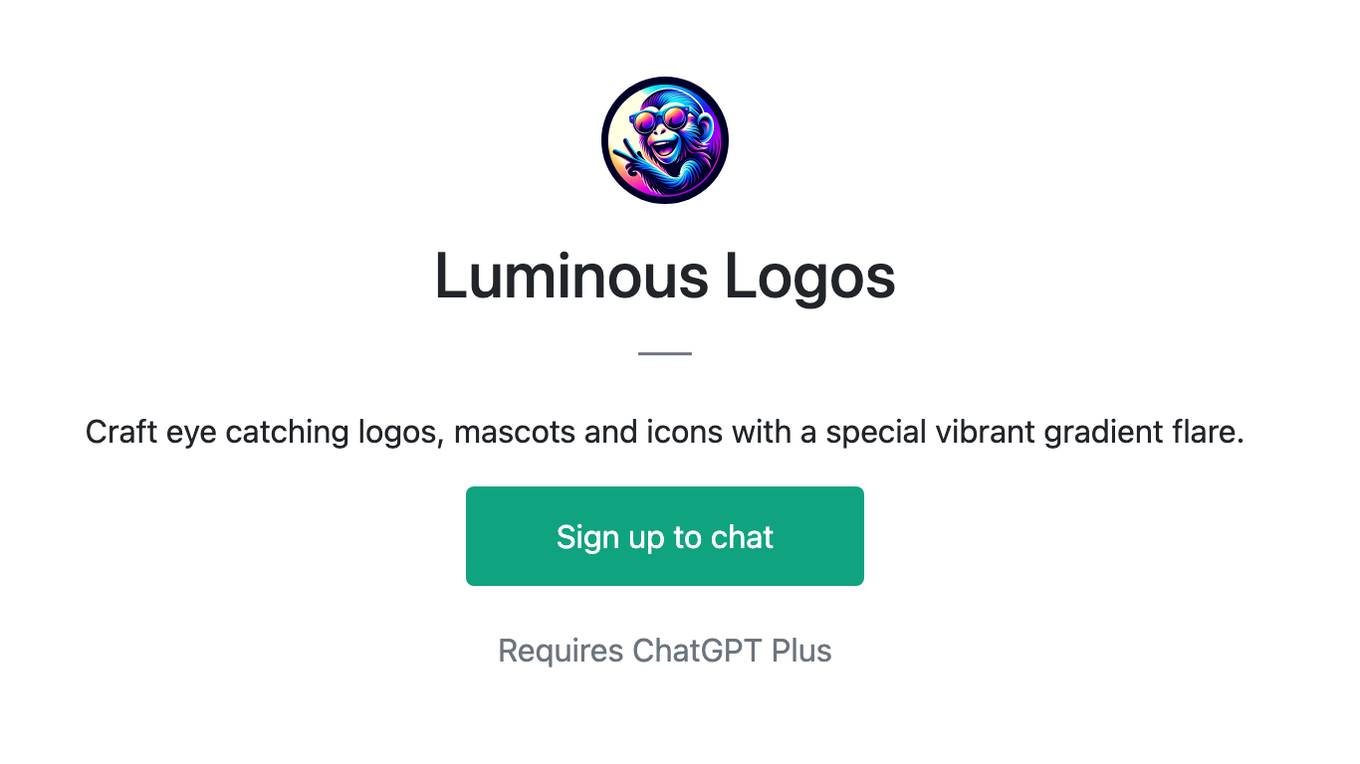
Luminous Logos
Craft eye catching logos, mascots and icons with a special vibrant gradient flare.
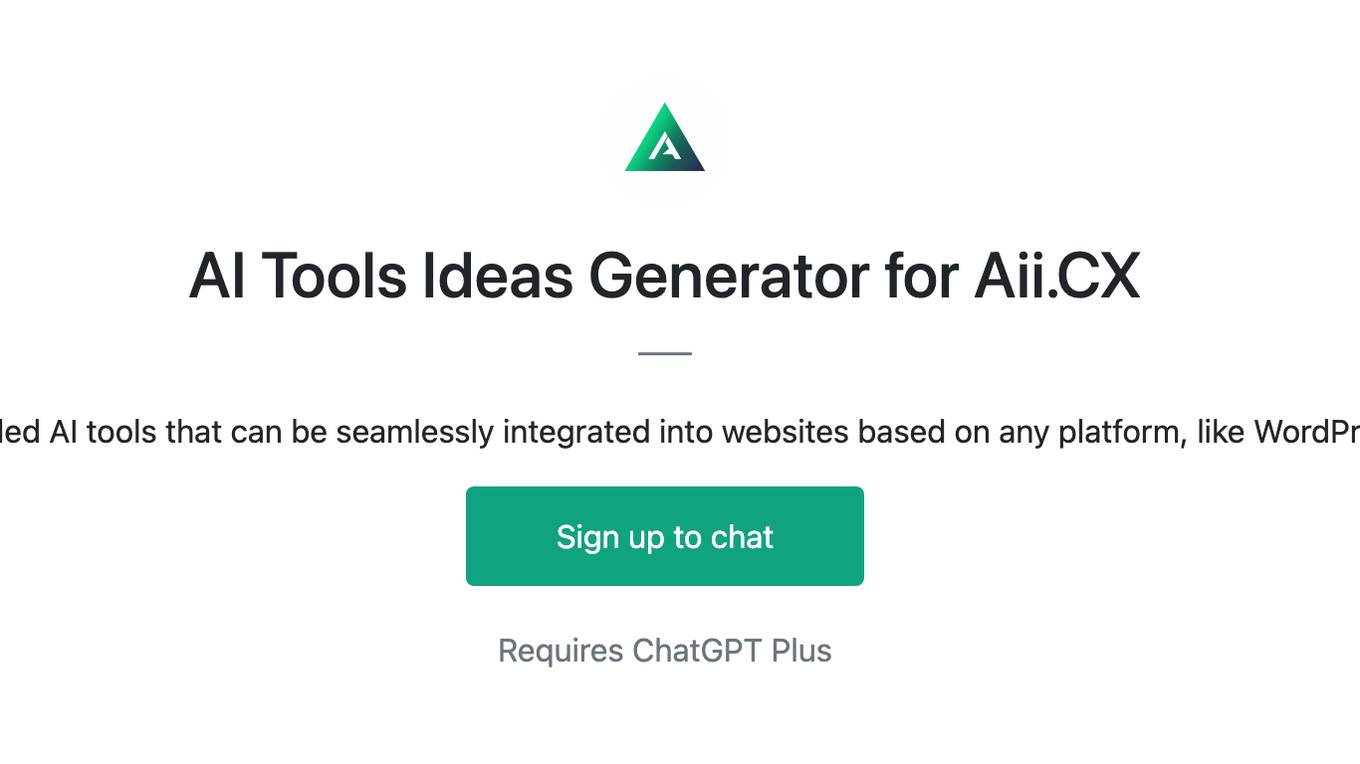
AI Tools Ideas Generator for Aii.CX
This chat generates ideas for embedded AI tools that can be seamlessly integrated into websites based on any platform, like WordPress, Wix, Shopify, and many others.
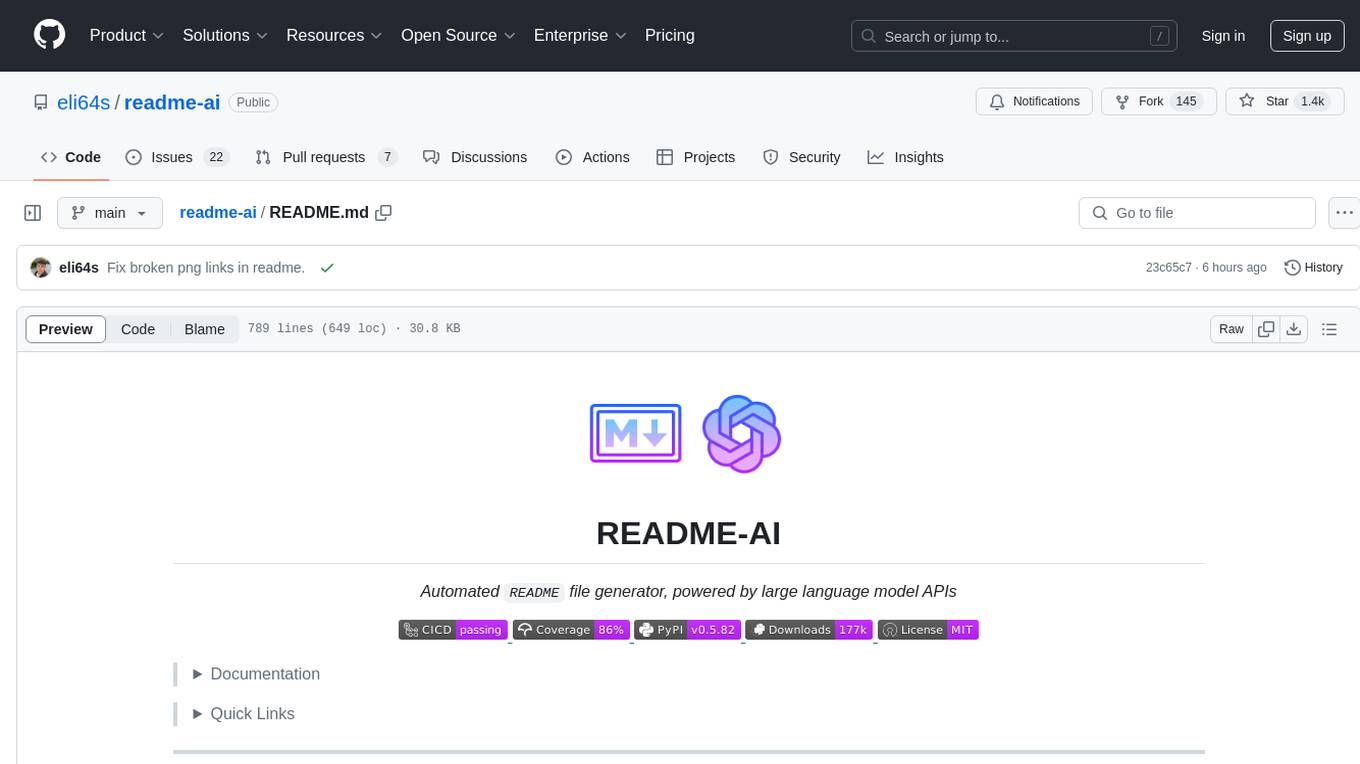
readme-ai
README-AI is a developer tool that auto-generates README.md files using a combination of data extraction and generative AI. It streamlines documentation creation and maintenance, enhancing developer productivity. This project aims to enable all skill levels, across all domains, to better understand, use, and contribute to open-source software. It offers flexible README generation, supports multiple large language models (LLMs), provides customizable output options, works with various programming languages and project types, and includes an offline mode for generating boilerplate README files without external API calls.
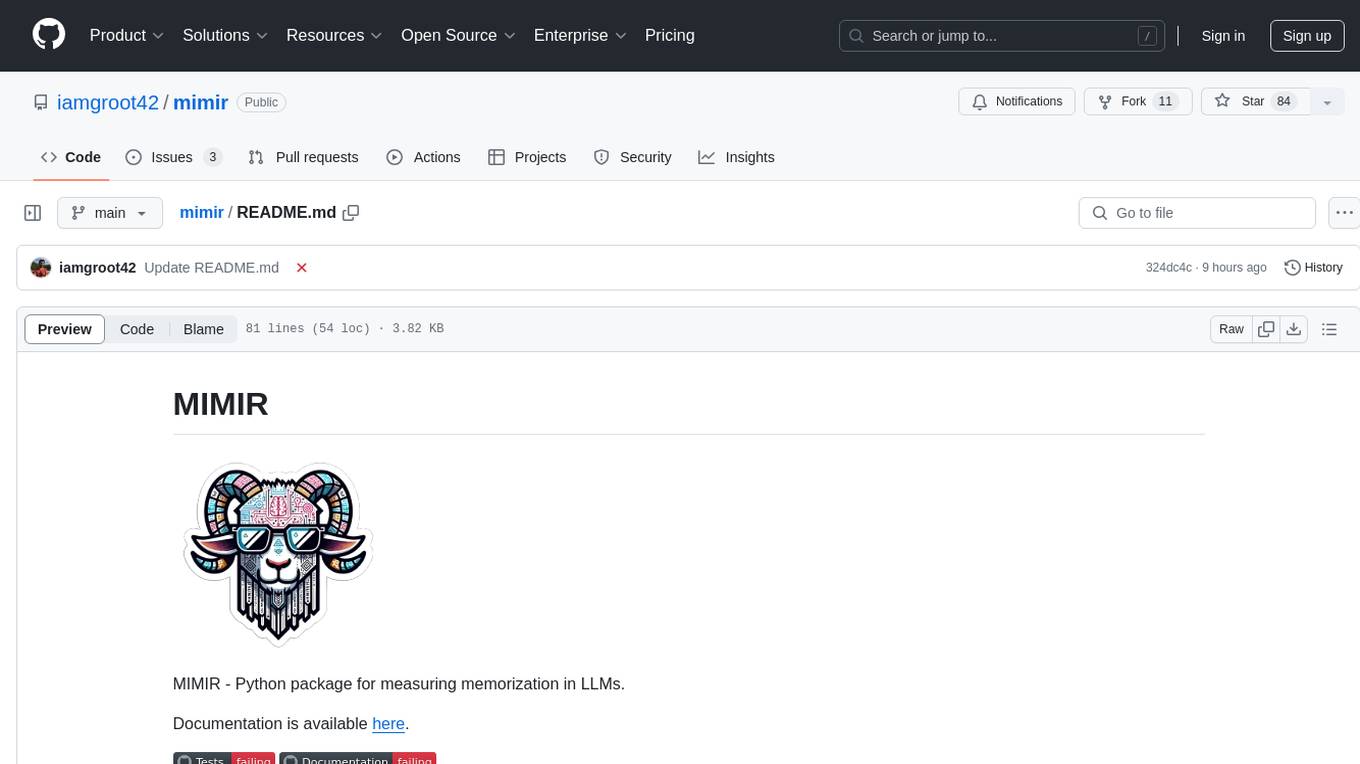
mimir
MIMIR is a Python package designed for measuring memorization in Large Language Models (LLMs). It provides functionalities for conducting experiments related to membership inference attacks on LLMs. The package includes implementations of various attacks such as Likelihood, Reference-based, Zlib Entropy, Neighborhood, Min-K% Prob, Min-K%++, Gradient Norm, and allows users to extend it by adding their own datasets and attacks.
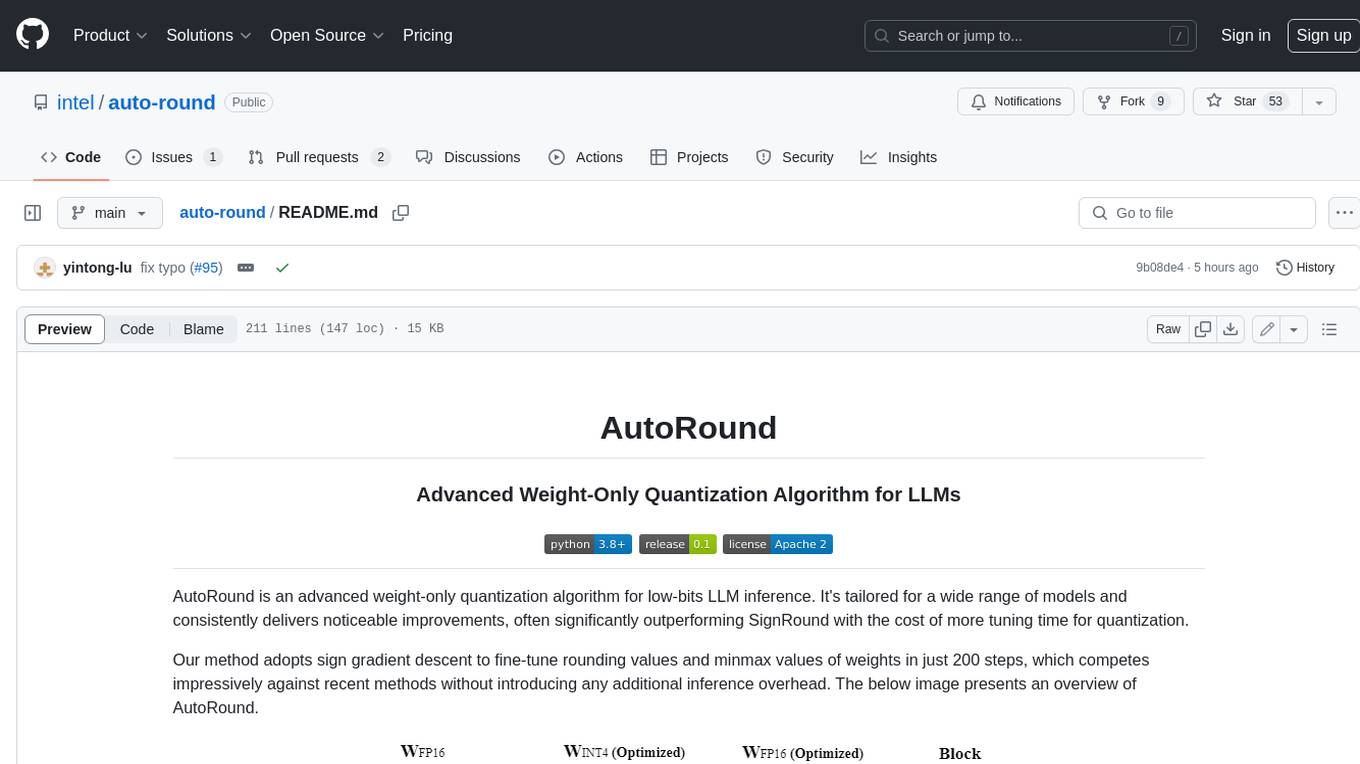
auto-round
AutoRound is an advanced weight-only quantization algorithm for low-bits LLM inference. It competes impressively against recent methods without introducing any additional inference overhead. The method adopts sign gradient descent to fine-tune rounding values and minmax values of weights in just 200 steps, often significantly outperforming SignRound with the cost of more tuning time for quantization. AutoRound is tailored for a wide range of models and consistently delivers noticeable improvements.
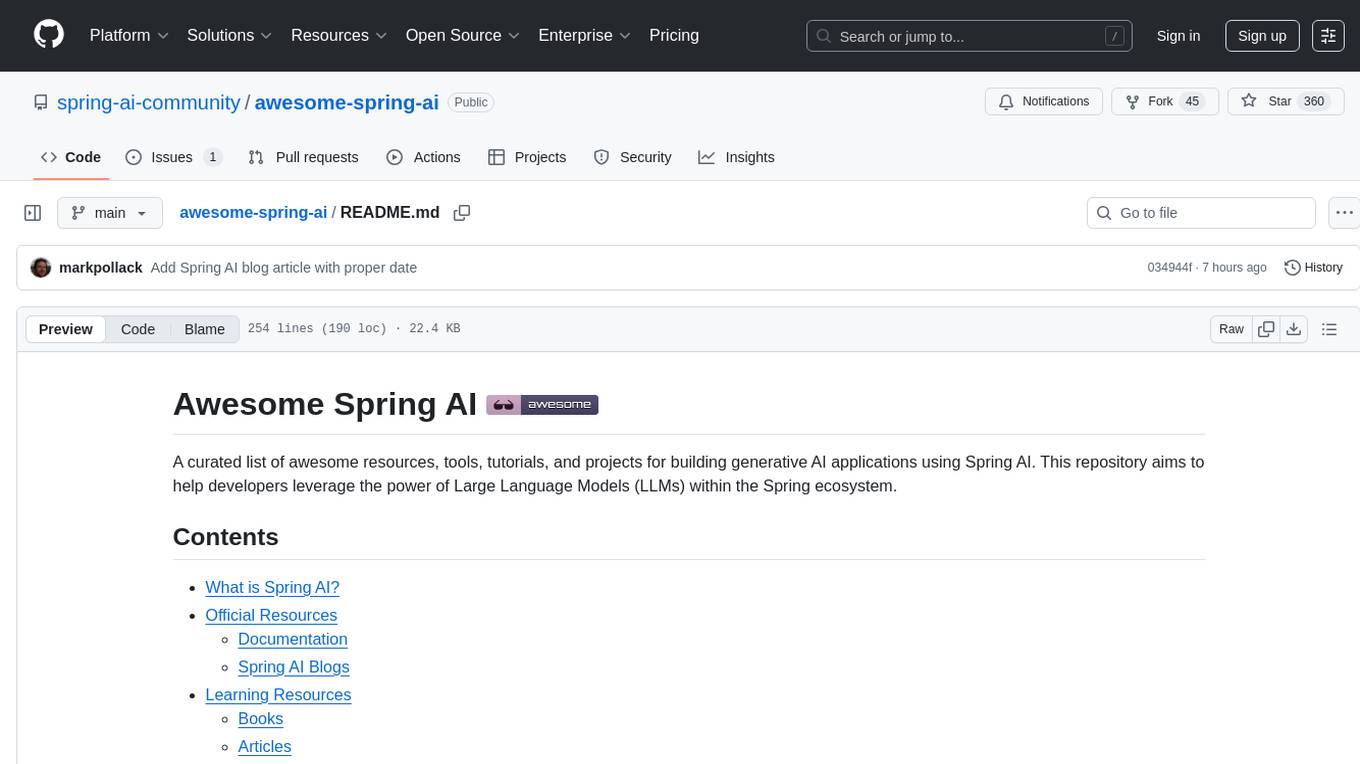
awesome-spring-ai
Awesome Spring AI is a curated list of resources, tools, tutorials, and projects for building generative AI applications using Spring AI. It provides a familiar developer experience for integrating Large Language Models and other AI capabilities into Spring applications, offering consistent abstractions, support for popular LLM providers, prompt engineering, caching mechanisms, vectorized storage integration, and more. The repository includes official resources, learning materials, code examples, community information, and tools for performance benchmarking.
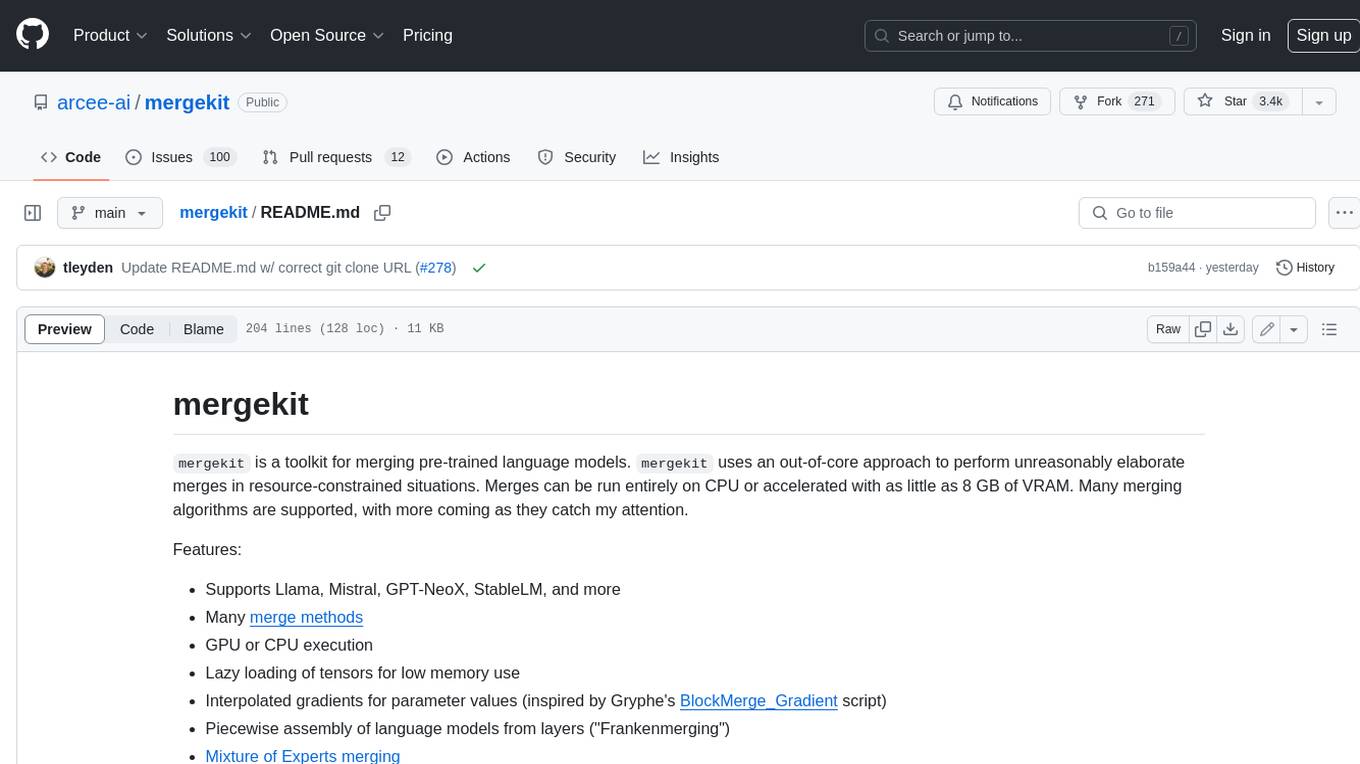
mergekit
Mergekit is a toolkit for merging pre-trained language models. It uses an out-of-core approach to perform unreasonably elaborate merges in resource-constrained situations. Merges can be run entirely on CPU or accelerated with as little as 8 GB of VRAM. Many merging algorithms are supported, with more coming as they catch my attention.
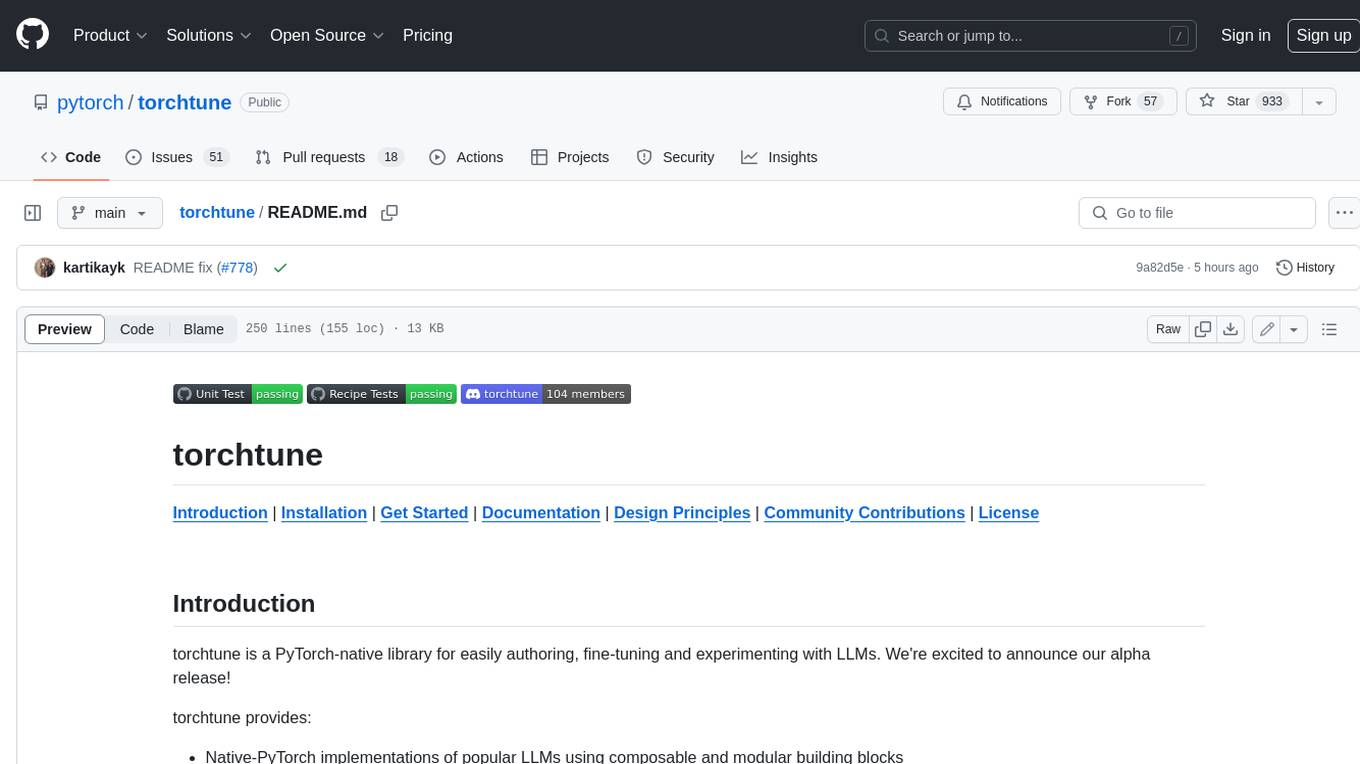
torchtune
Torchtune is a PyTorch-native library for easily authoring, fine-tuning, and experimenting with LLMs. It provides native-PyTorch implementations of popular LLMs using composable and modular building blocks, easy-to-use and hackable training recipes for popular fine-tuning techniques, YAML configs for easily configuring training, evaluation, quantization, or inference recipes, and built-in support for many popular dataset formats and prompt templates to help you quickly get started with training.
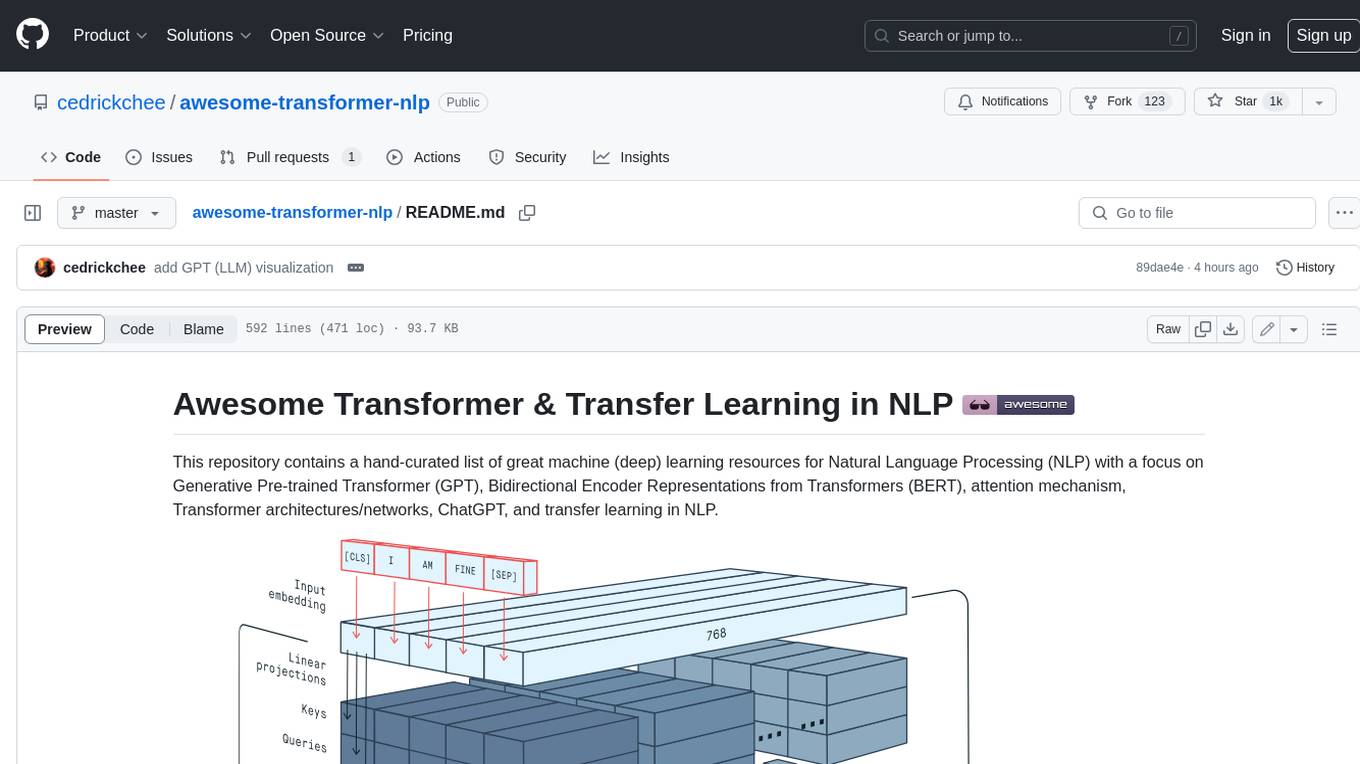
awesome-transformer-nlp
This repository contains a hand-curated list of great machine (deep) learning resources for Natural Language Processing (NLP) with a focus on Generative Pre-trained Transformer (GPT), Bidirectional Encoder Representations from Transformers (BERT), attention mechanism, Transformer architectures/networks, Chatbot, and transfer learning in NLP.
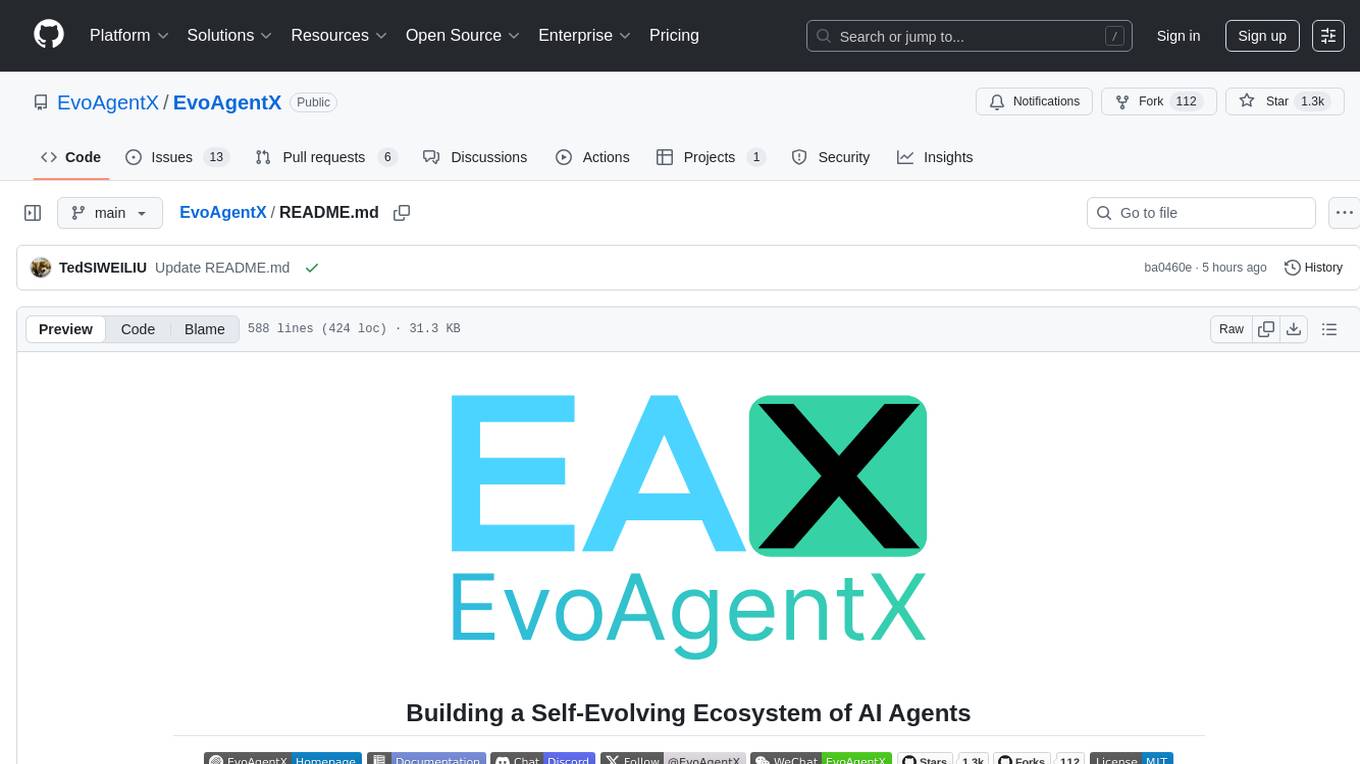
EvoAgentX
EvoAgentX is an open-source framework for building, evaluating, and evolving LLM-based agents or agentic workflows in an automated, modular, and goal-driven manner. It enables developers and researchers to move beyond static prompt chaining or manual workflow orchestration by introducing a self-evolving agent ecosystem. The framework includes features such as agent workflow autoconstruction, built-in evaluation, self-evolution engine, plug-and-play compatibility, comprehensive built-in tools, memory module support, and human-in-the-loop interactions.
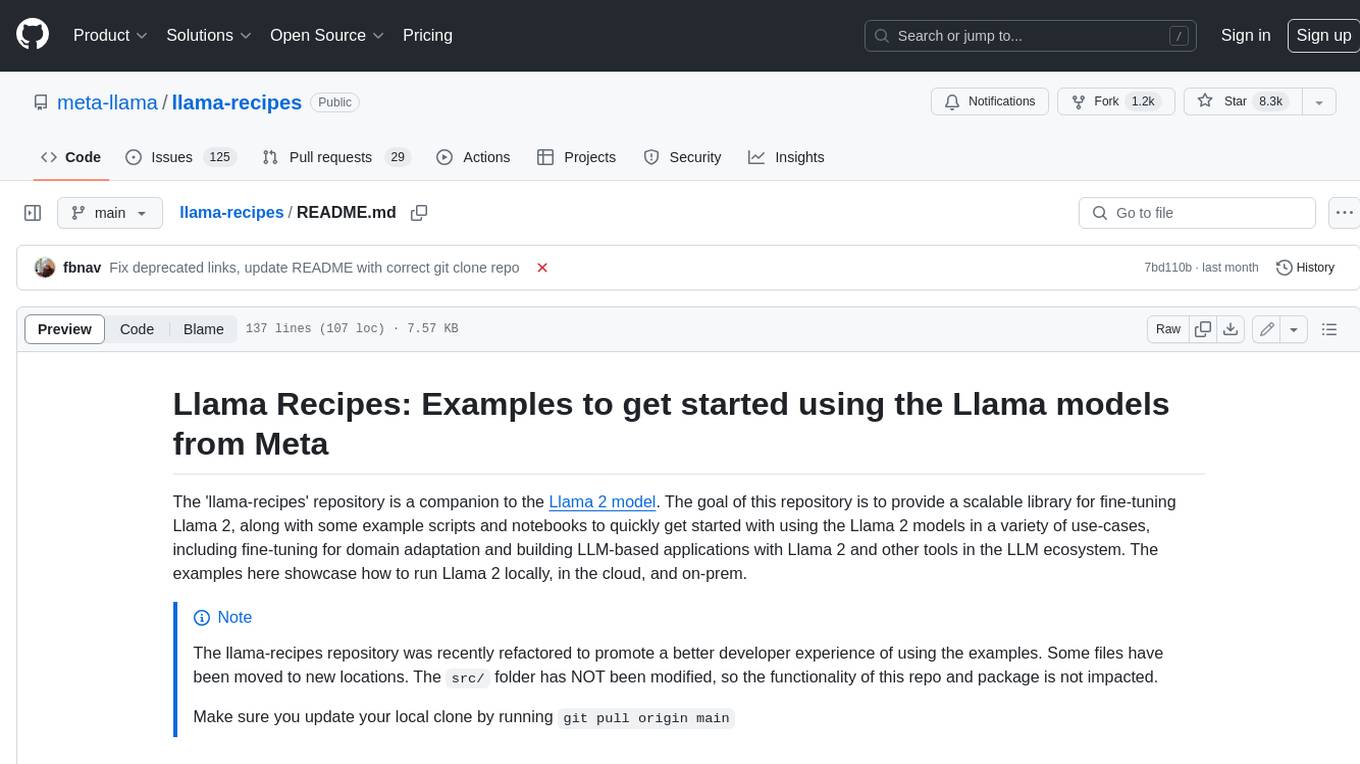
llama-recipes
The llama-recipes repository provides a scalable library for fine-tuning Llama 2, along with example scripts and notebooks to quickly get started with using the Llama 2 models in a variety of use-cases, including fine-tuning for domain adaptation and building LLM-based applications with Llama 2 and other tools in the LLM ecosystem. The examples here showcase how to run Llama 2 locally, in the cloud, and on-prem.
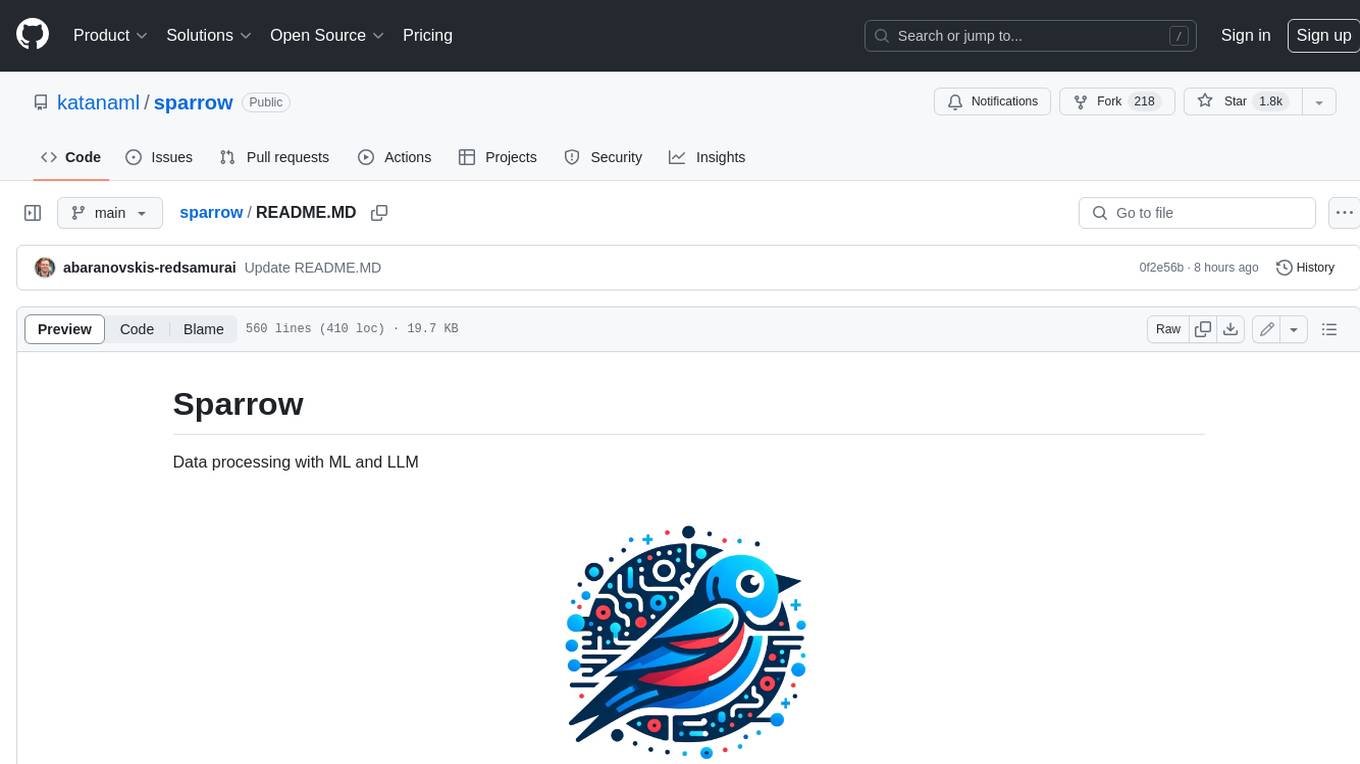
sparrow
Sparrow is an innovative open-source solution for efficient data extraction and processing from various documents and images. It seamlessly handles forms, invoices, receipts, and other unstructured data sources. Sparrow stands out with its modular architecture, offering independent services and pipelines all optimized for robust performance. One of the critical functionalities of Sparrow - pluggable architecture. You can easily integrate and run data extraction pipelines using tools and frameworks like LlamaIndex, Haystack, or Unstructured. Sparrow enables local LLM data extraction pipelines through Ollama or Apple MLX. With Sparrow solution you get API, which helps to process and transform your data into structured output, ready to be integrated with custom workflows. Sparrow Agents - with Sparrow you can build independent LLM agents, and use API to invoke them from your system. **List of available agents:** * **llamaindex** - RAG pipeline with LlamaIndex for PDF processing * **vllamaindex** - RAG pipeline with LLamaIndex multimodal for image processing * **vprocessor** - RAG pipeline with OCR and LlamaIndex for image processing * **haystack** - RAG pipeline with Haystack for PDF processing * **fcall** - Function call pipeline * **unstructured-light** - RAG pipeline with Unstructured and LangChain, supports PDF and image processing * **unstructured** - RAG pipeline with Weaviate vector DB query, Unstructured and LangChain, supports PDF and image processing * **instructor** - RAG pipeline with Unstructured and Instructor libraries, supports PDF and image processing. Works great for JSON response generation

free-for-life
A massive list including a huge amount of products and services that are completely free! ⭐ Star on GitHub • 🤝 Contribute # Table of Contents * APIs, Data & ML * Artificial Intelligence * BaaS * Code Editors * Code Generation * DNS * Databases * Design & UI * Domains * Email * Font * For Students * Forms * Linux Distributions * Messaging & Streaming * PaaS * Payments & Billing * SSL

AiTreasureBox
AiTreasureBox is a versatile AI tool that provides a collection of pre-trained models and algorithms for various machine learning tasks. It simplifies the process of implementing AI solutions by offering ready-to-use components that can be easily integrated into projects. With AiTreasureBox, users can quickly prototype and deploy AI applications without the need for extensive knowledge in machine learning or deep learning. The tool covers a wide range of tasks such as image classification, text generation, sentiment analysis, object detection, and more. It is designed to be user-friendly and accessible to both beginners and experienced developers, making AI development more efficient and accessible to a wider audience.
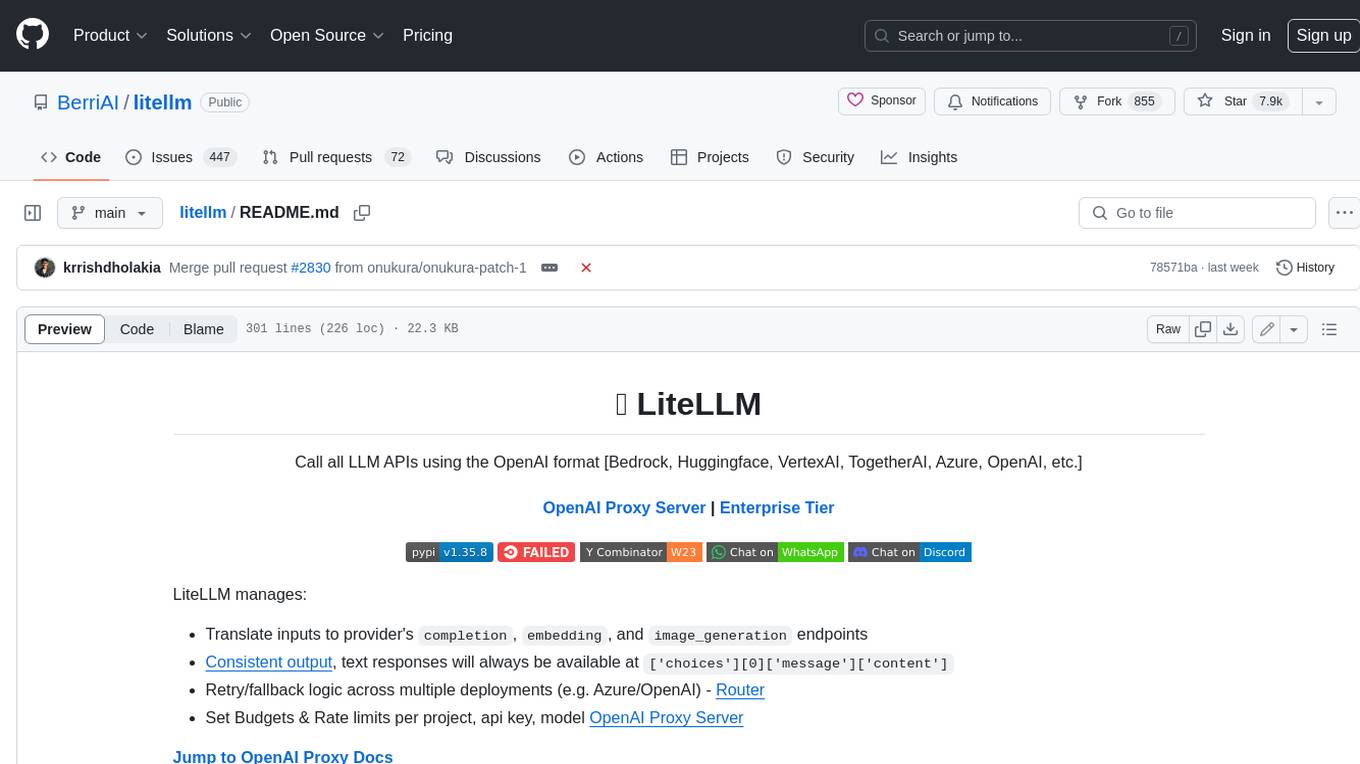
litellm
LiteLLM is a tool that allows you to call all LLM APIs using the OpenAI format. This includes Bedrock, Huggingface, VertexAI, TogetherAI, Azure, OpenAI, and more. LiteLLM manages translating inputs to provider's `completion`, `embedding`, and `image_generation` endpoints, providing consistent output, and retry/fallback logic across multiple deployments. It also supports setting budgets and rate limits per project, api key, and model.
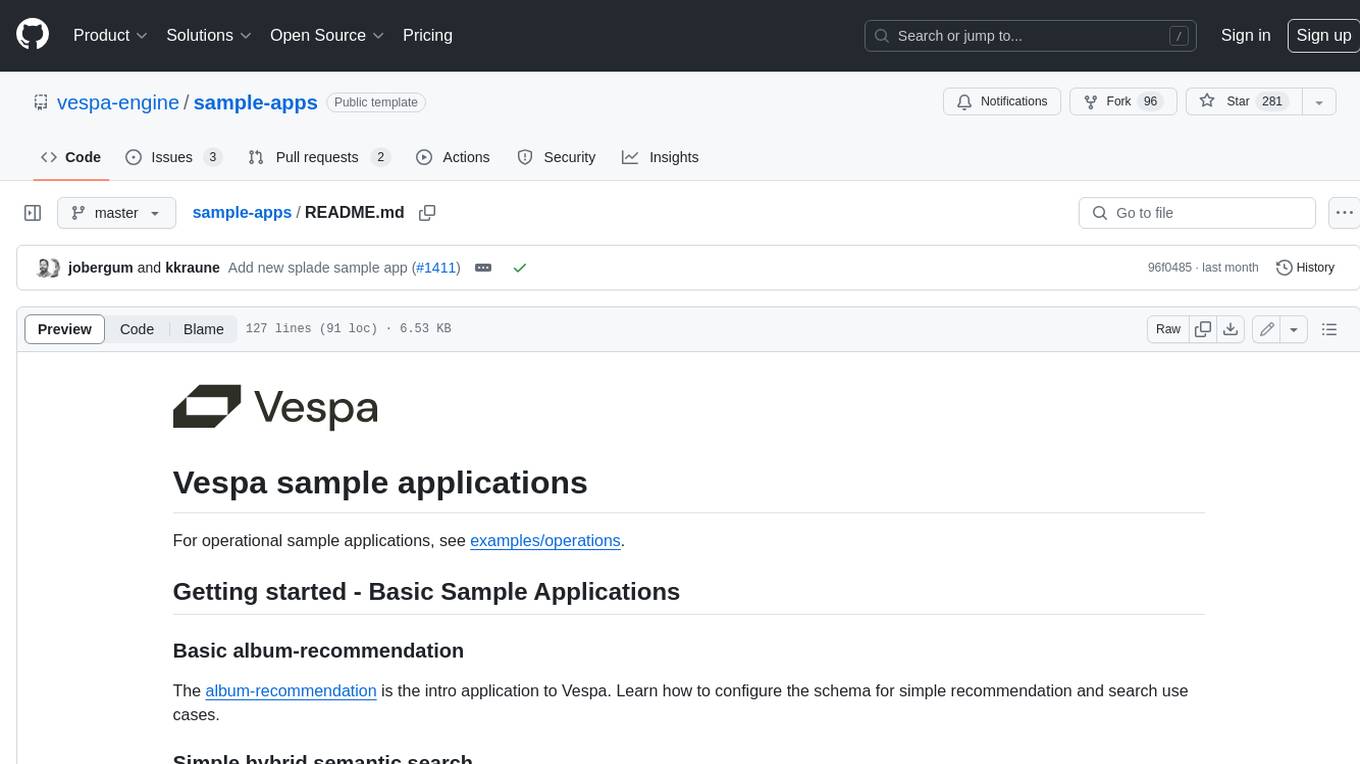
sample-apps
Vespa is an open-source search and AI engine that provides a unified platform for building and deploying search and AI applications. Vespa sample applications showcase various use cases and features of Vespa, including basic search, recommendation, semantic search, image search, text ranking, e-commerce search, question answering, search-as-you-type, and ML inference serving.
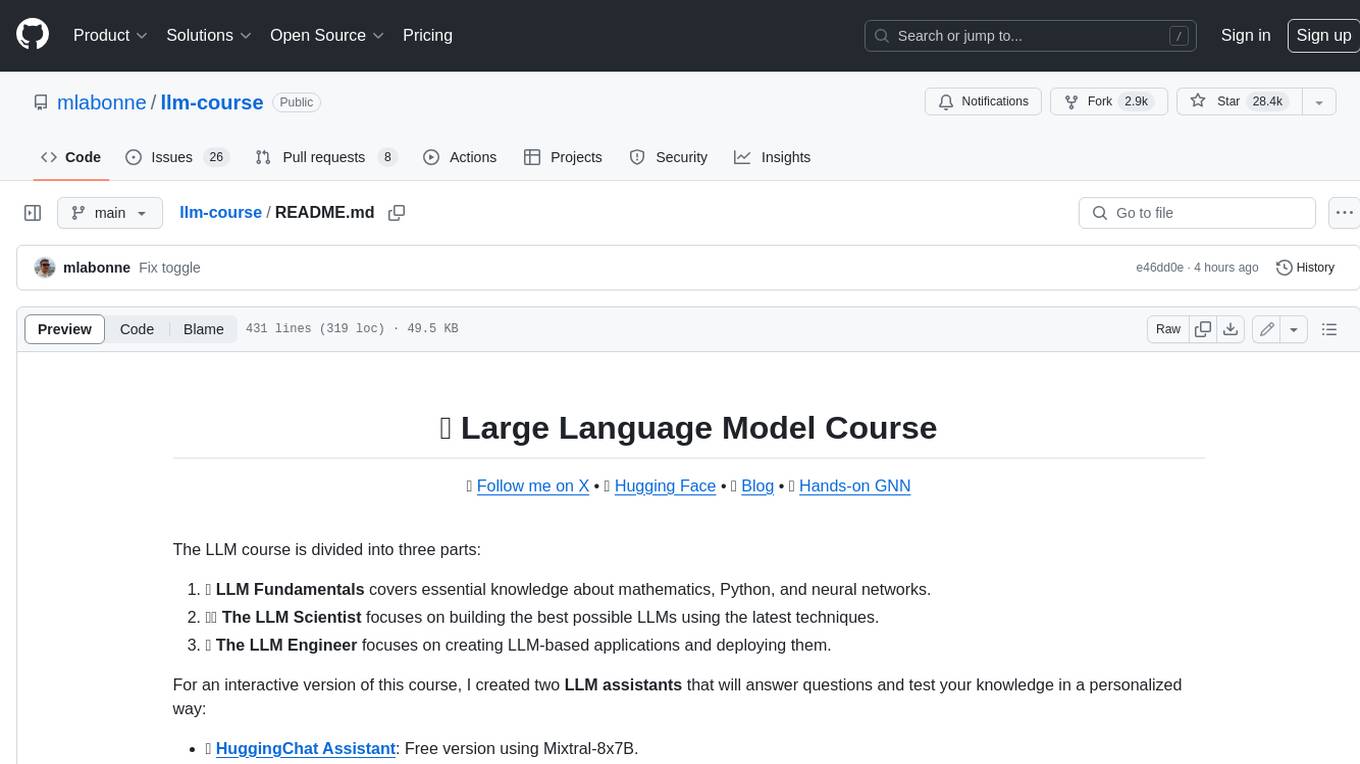
llm-course
The LLM course is divided into three parts: 1. 🧩 **LLM Fundamentals** covers essential knowledge about mathematics, Python, and neural networks. 2. 🧑🔬 **The LLM Scientist** focuses on building the best possible LLMs using the latest techniques. 3. 👷 **The LLM Engineer** focuses on creating LLM-based applications and deploying them. For an interactive version of this course, I created two **LLM assistants** that will answer questions and test your knowledge in a personalized way: * 🤗 **HuggingChat Assistant**: Free version using Mixtral-8x7B. * 🤖 **ChatGPT Assistant**: Requires a premium account. ## 📝 Notebooks A list of notebooks and articles related to large language models. ### Tools | Notebook | Description | Notebook | |----------|-------------|----------| | 🧐 LLM AutoEval | Automatically evaluate your LLMs using RunPod |  | | 🥱 LazyMergekit | Easily merge models using MergeKit in one click. |  | | 🦎 LazyAxolotl | Fine-tune models in the cloud using Axolotl in one click. |  | | ⚡ AutoQuant | Quantize LLMs in GGUF, GPTQ, EXL2, AWQ, and HQQ formats in one click. |  | | 🌳 Model Family Tree | Visualize the family tree of merged models. |  | | 🚀 ZeroSpace | Automatically create a Gradio chat interface using a free ZeroGPU. |  |
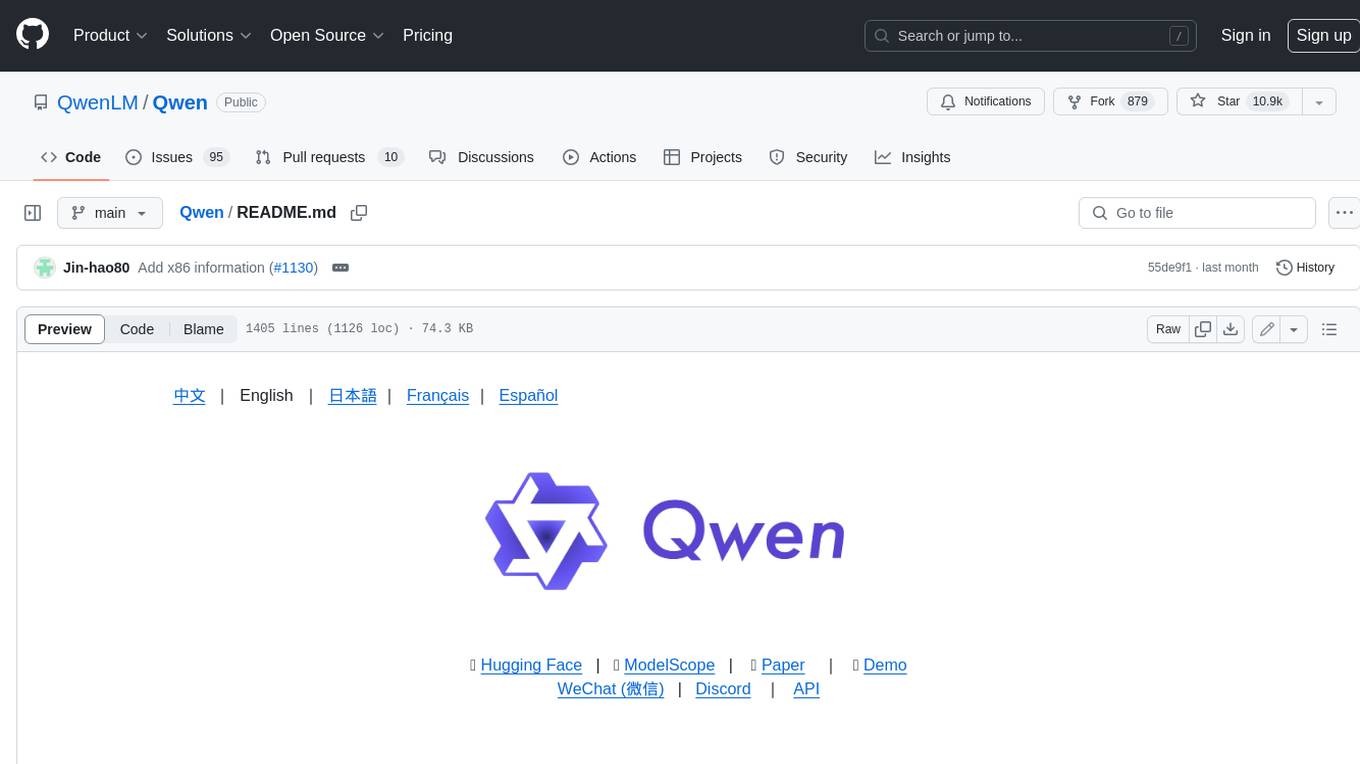
Qwen
Qwen is a series of large language models developed by Alibaba DAMO Academy. It outperforms the baseline models of similar model sizes on a series of benchmark datasets, e.g., MMLU, C-Eval, GSM8K, MATH, HumanEval, MBPP, BBH, etc., which evaluate the models’ capabilities on natural language understanding, mathematic problem solving, coding, etc. Qwen models outperform the baseline models of similar model sizes on a series of benchmark datasets, e.g., MMLU, C-Eval, GSM8K, MATH, HumanEval, MBPP, BBH, etc., which evaluate the models’ capabilities on natural language understanding, mathematic problem solving, coding, etc. Qwen-72B achieves better performance than LLaMA2-70B on all tasks and outperforms GPT-3.5 on 7 out of 10 tasks.
